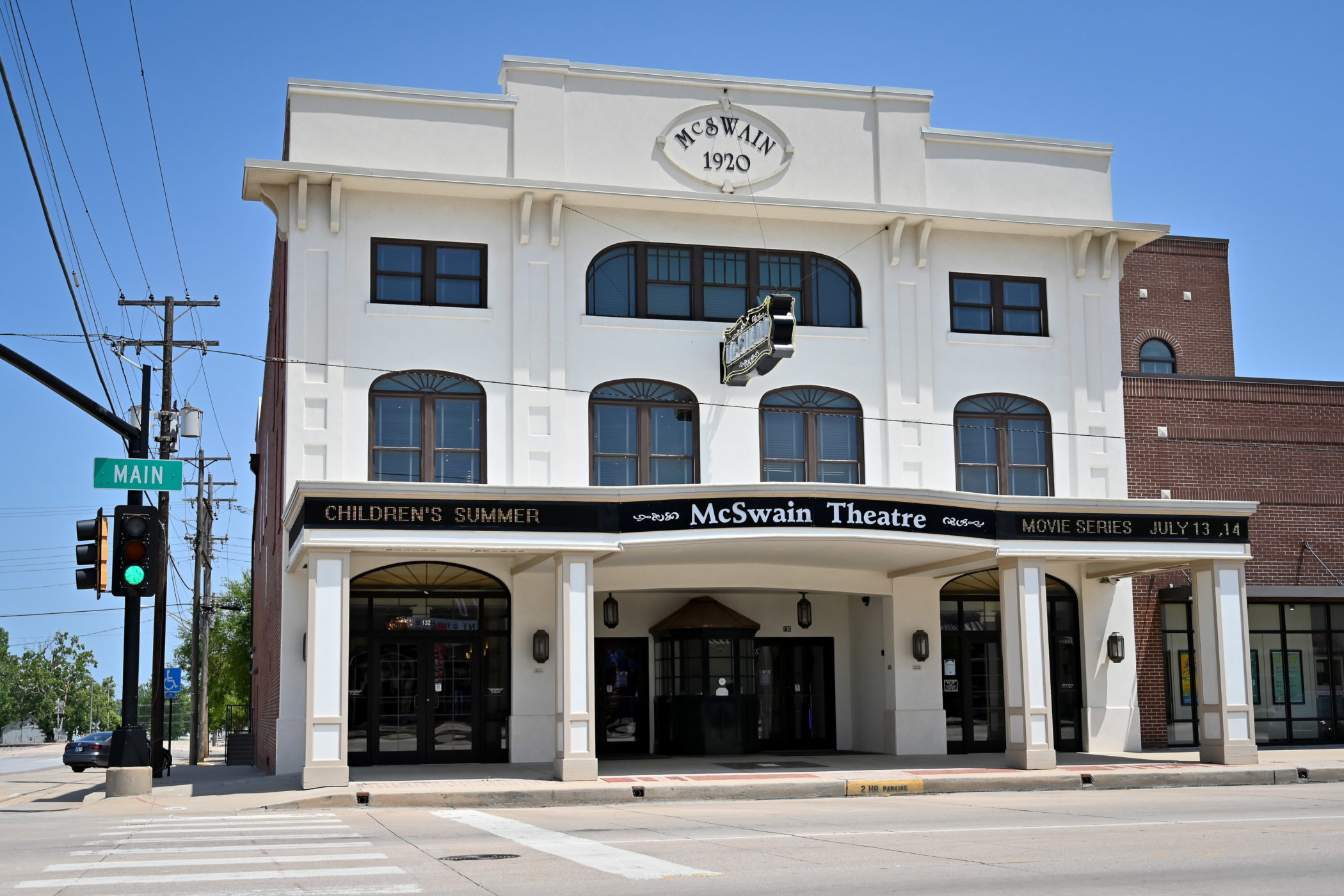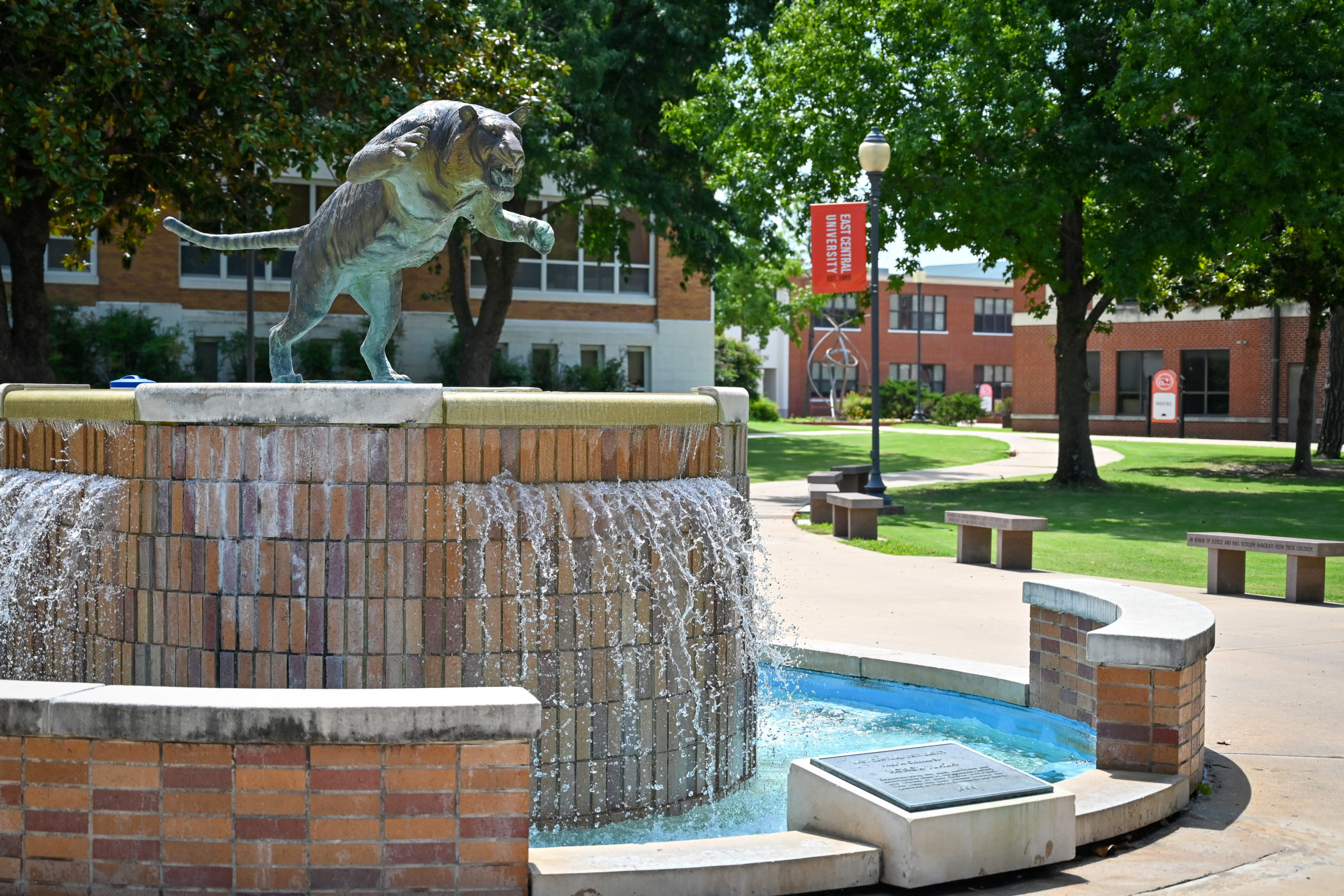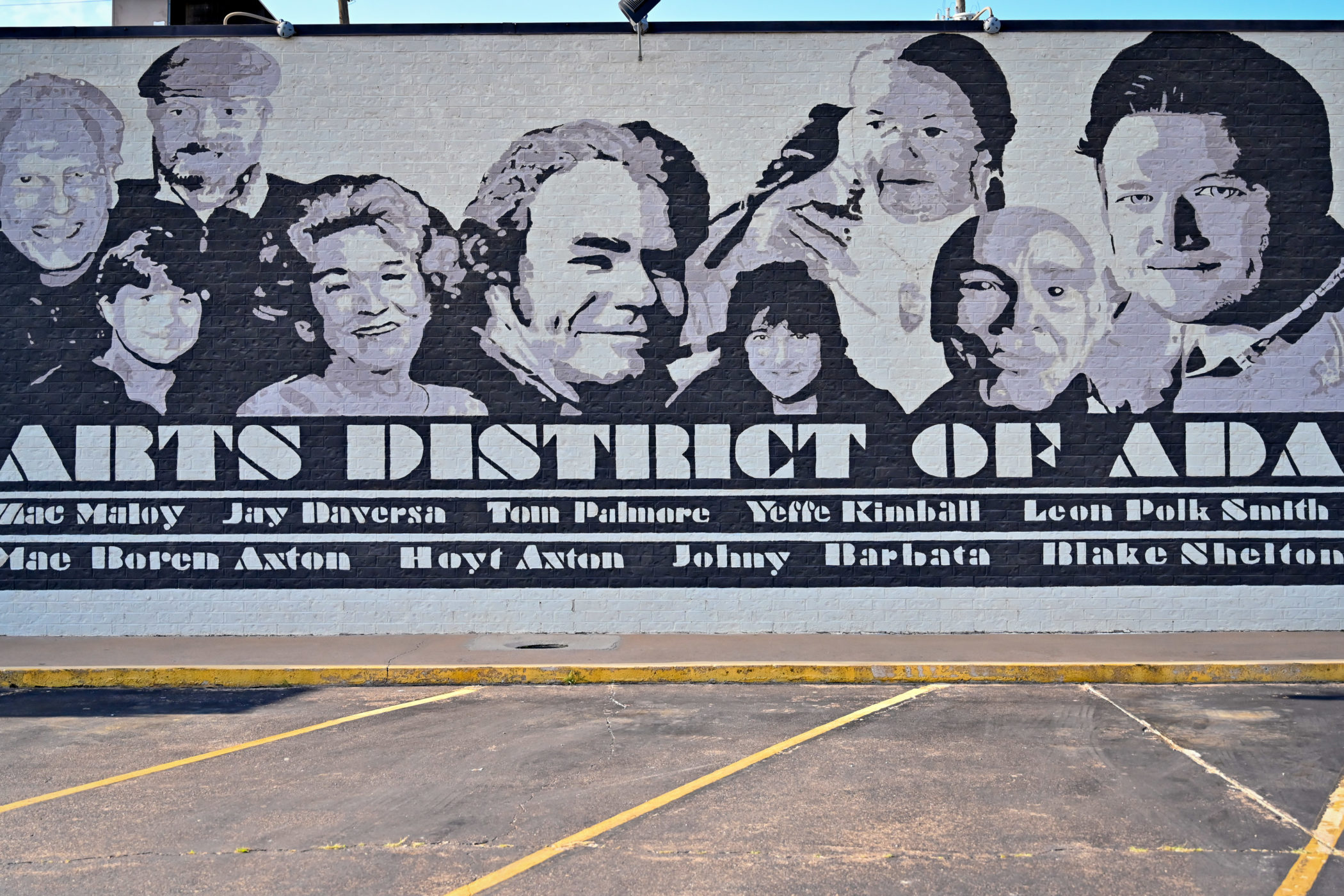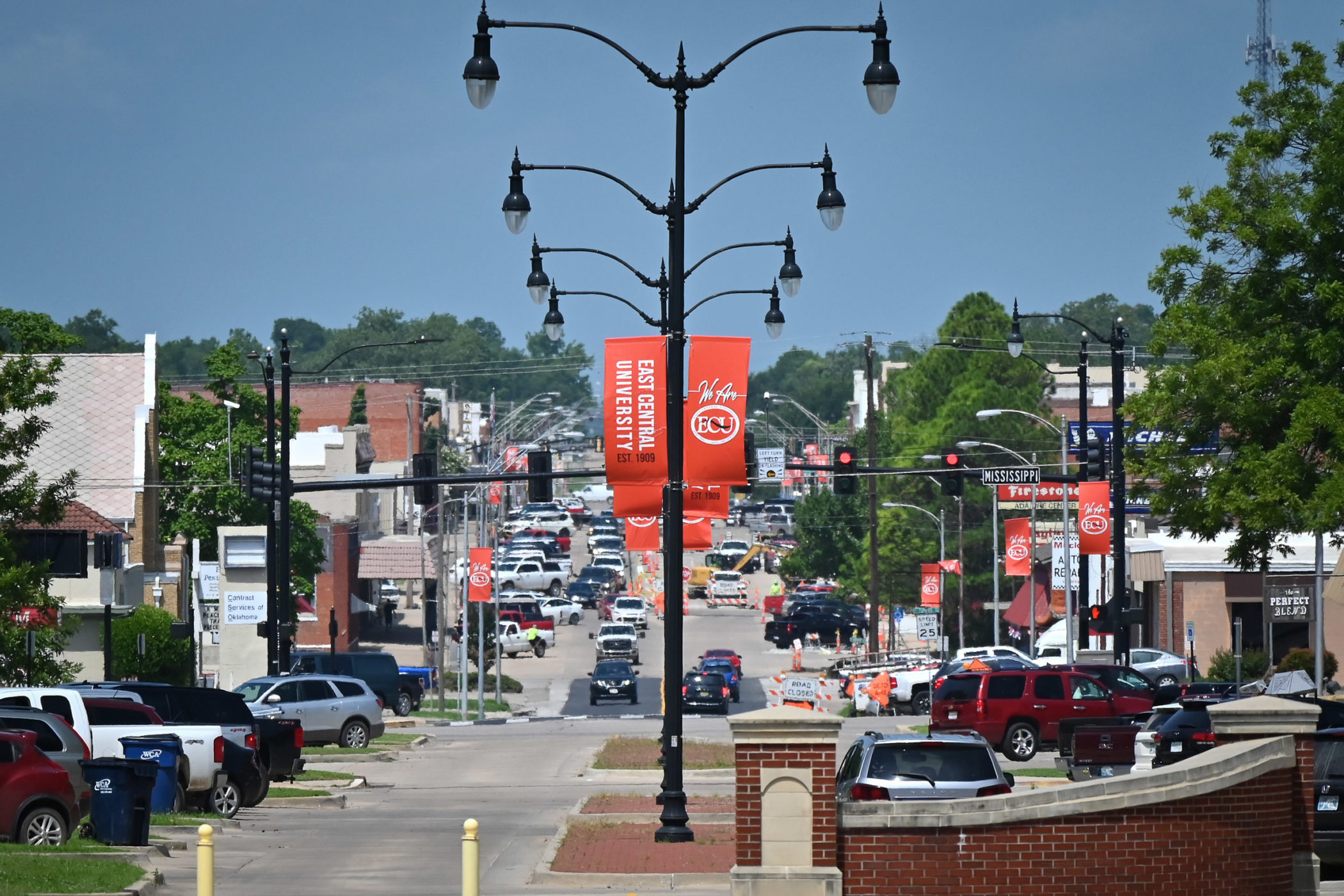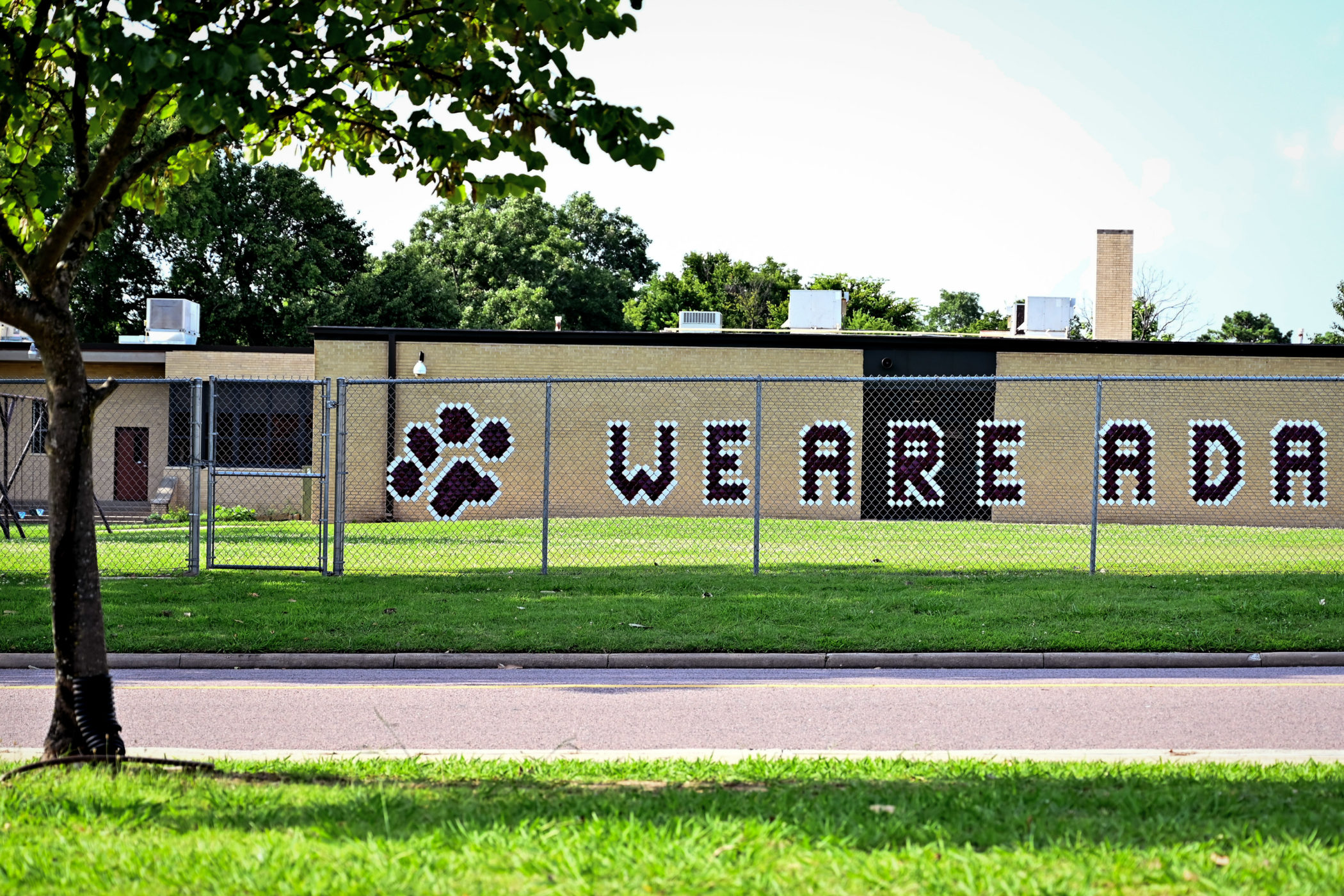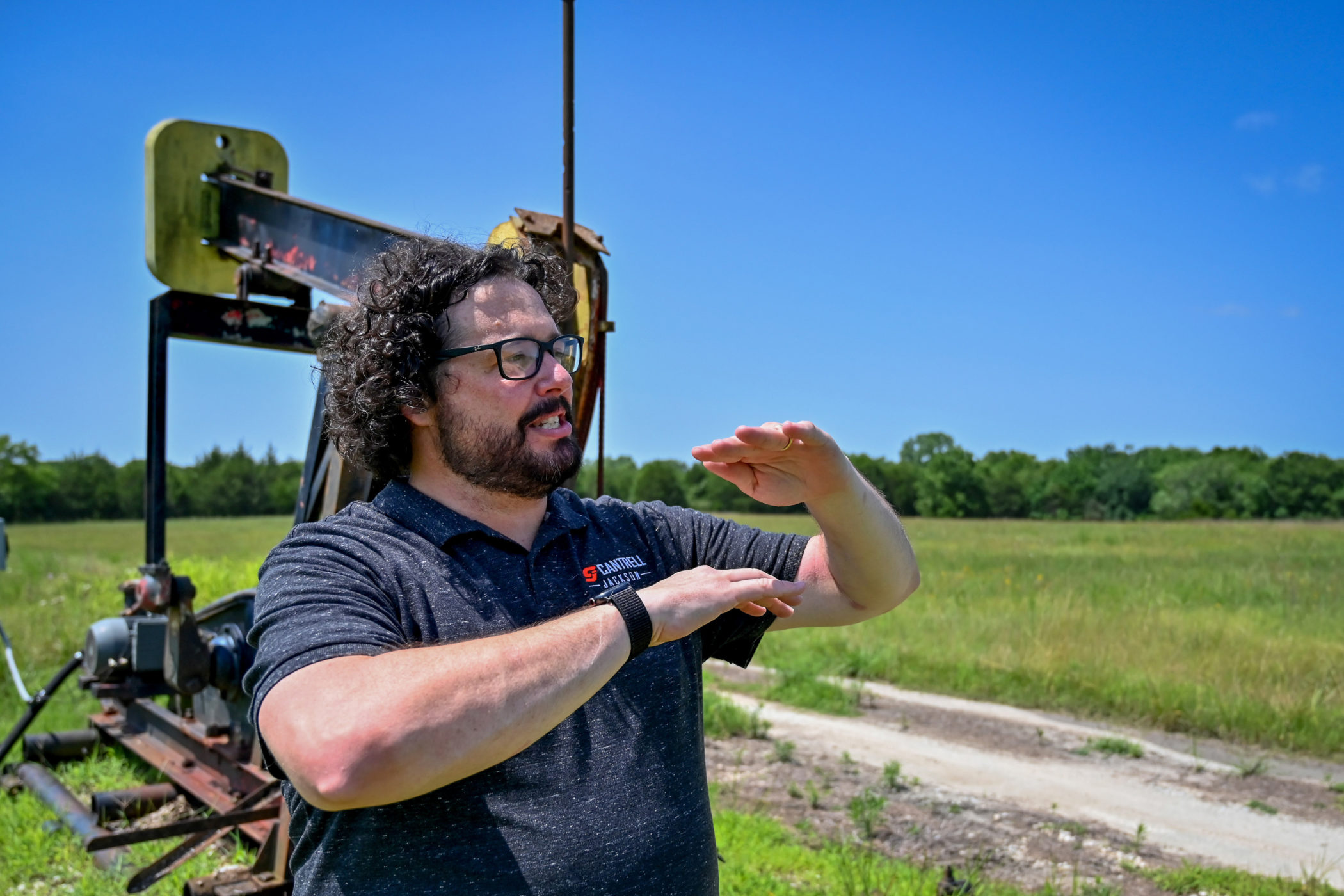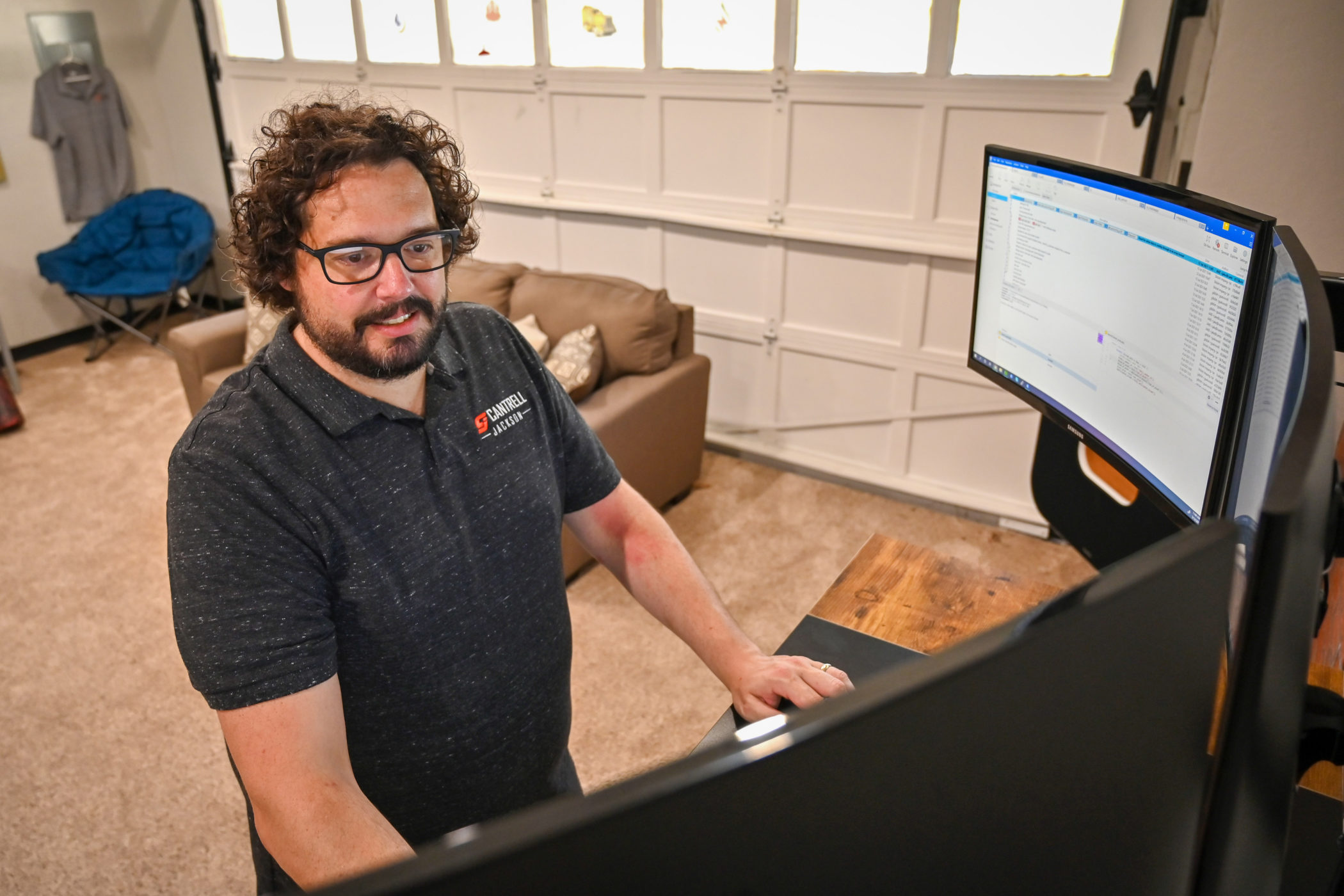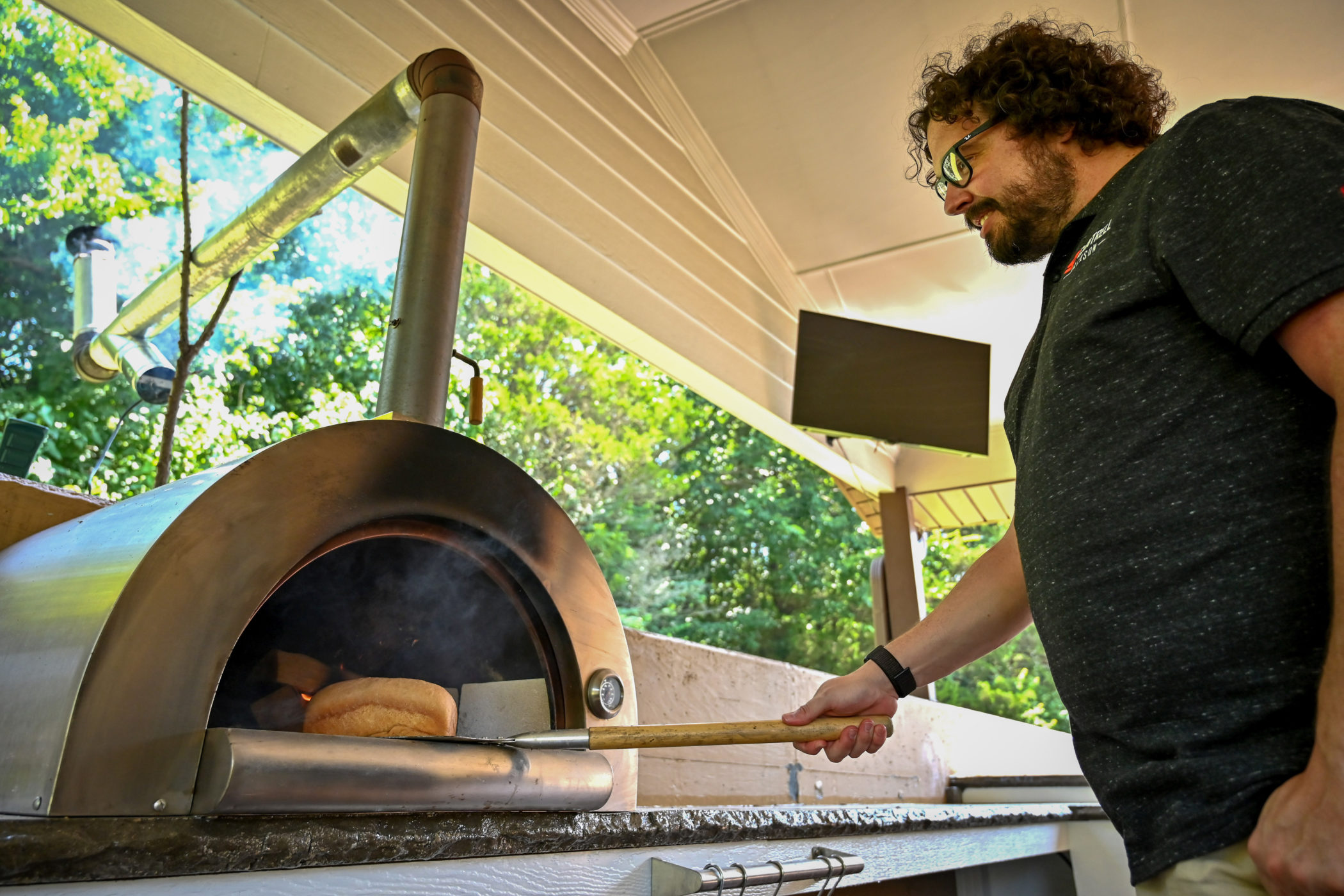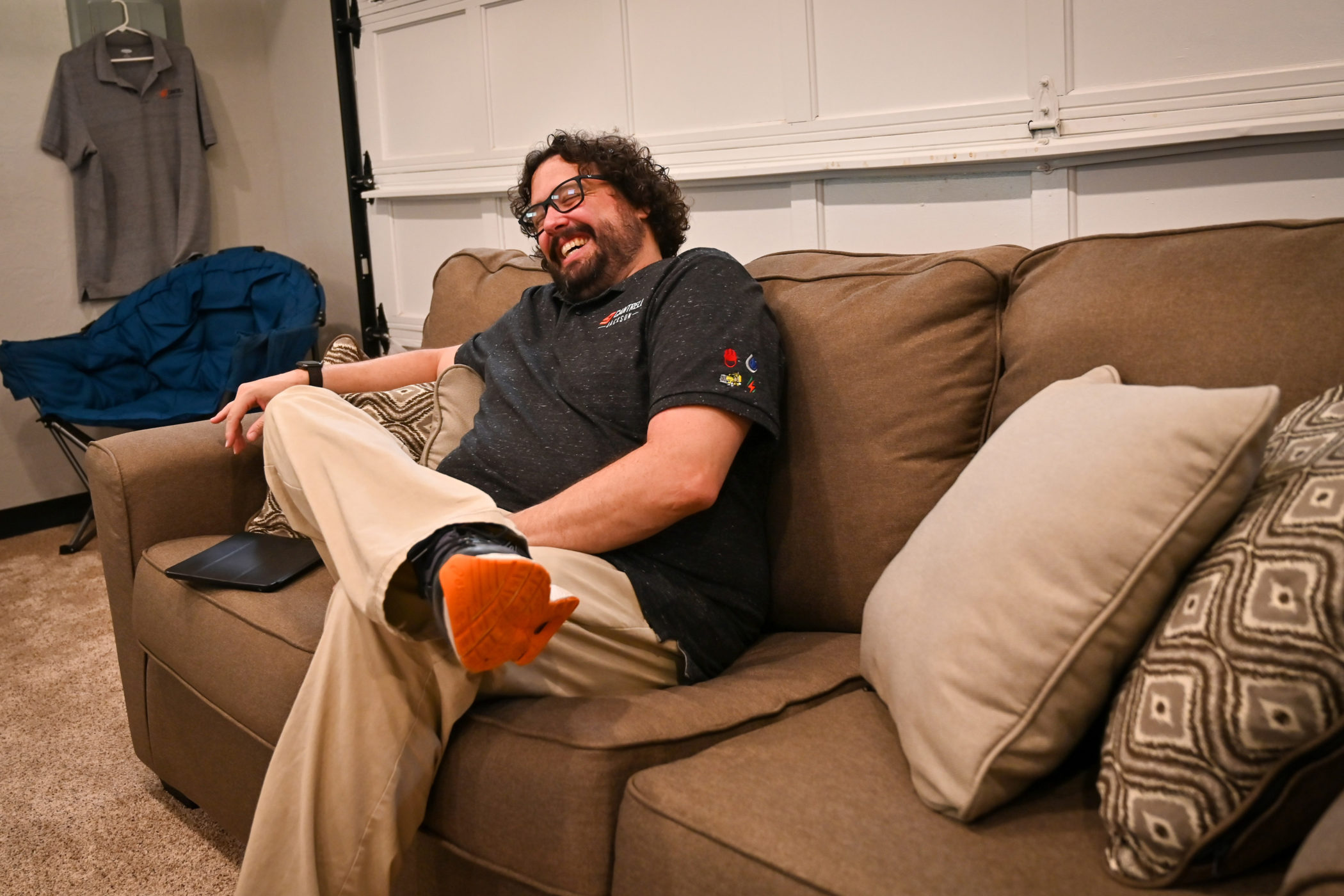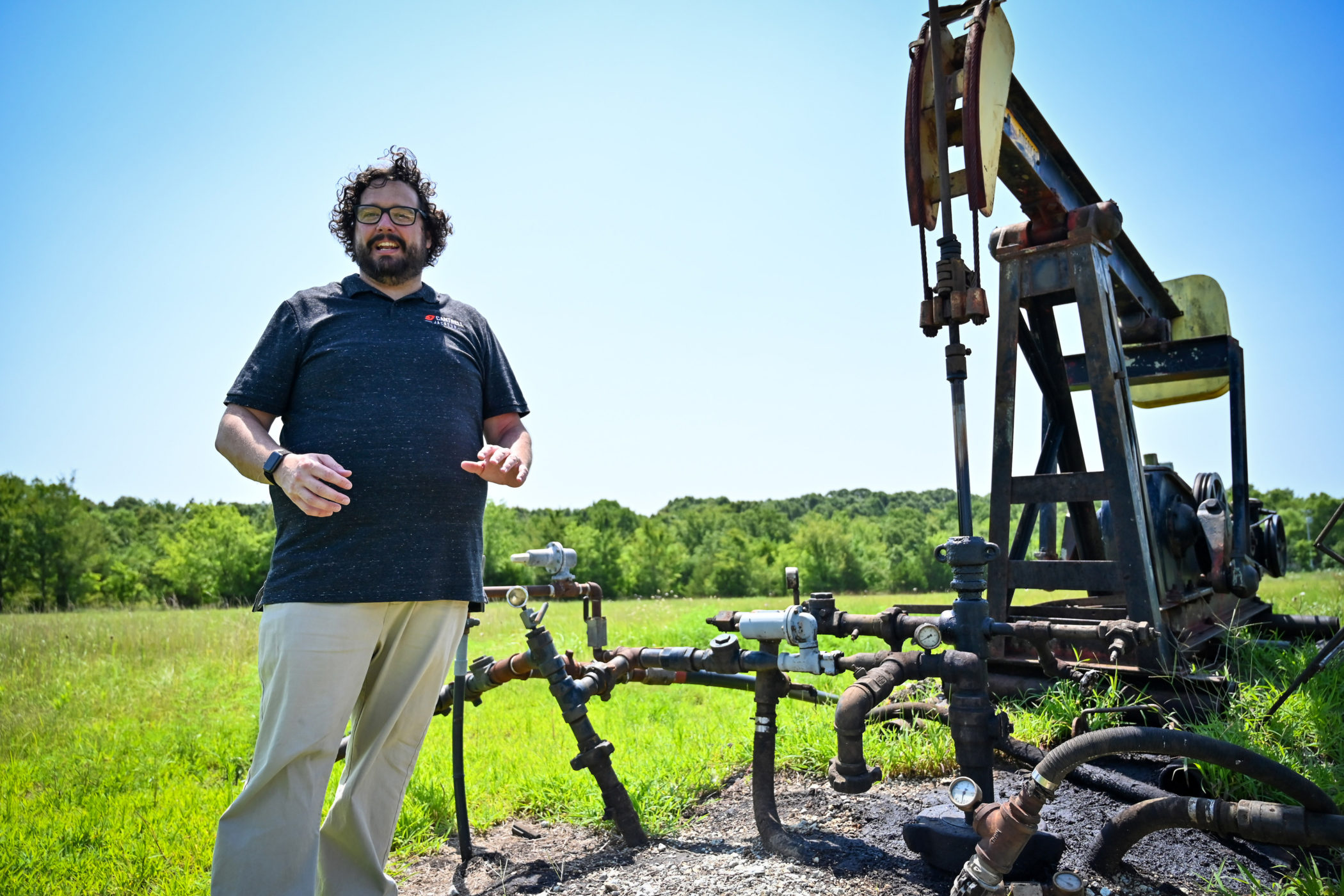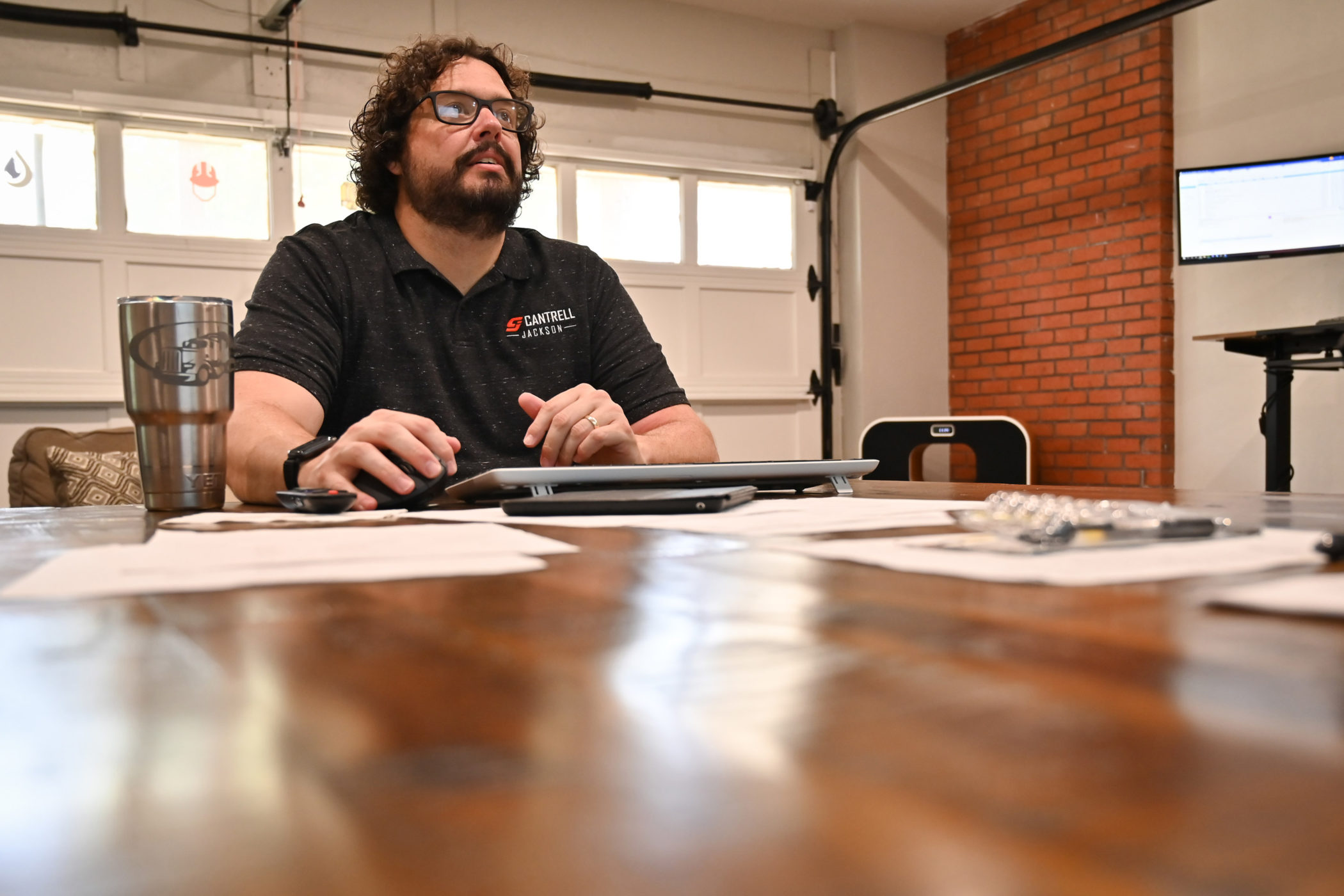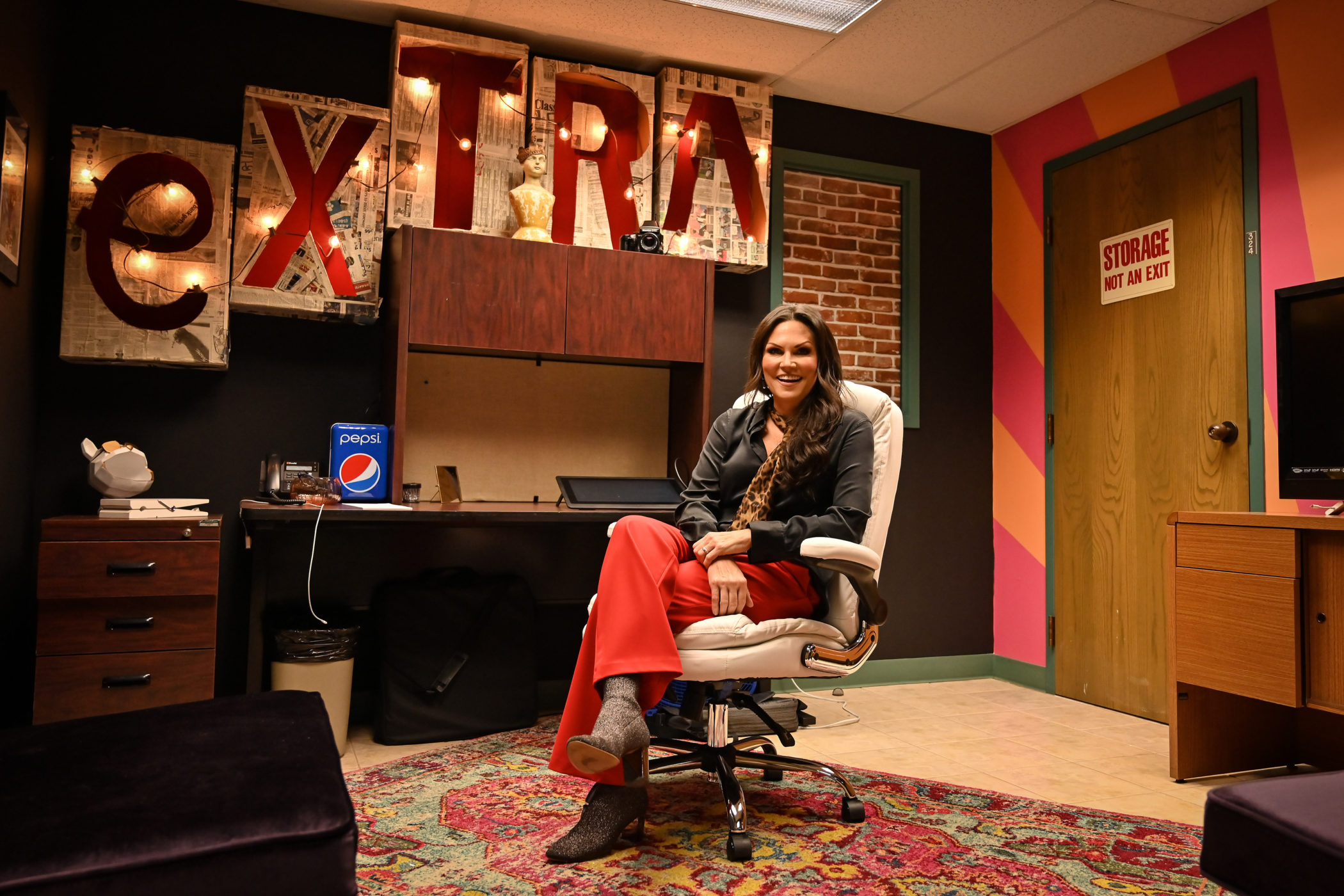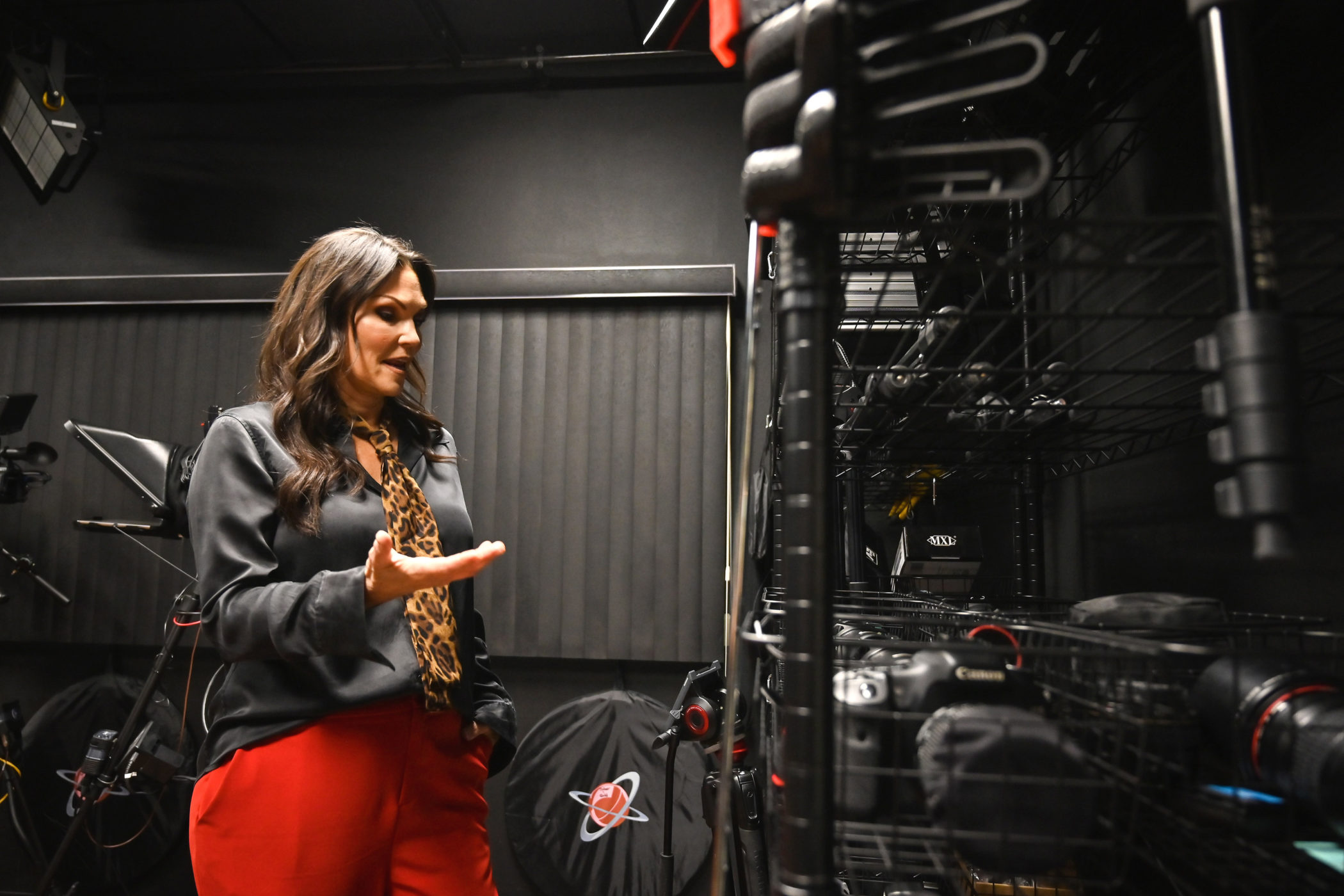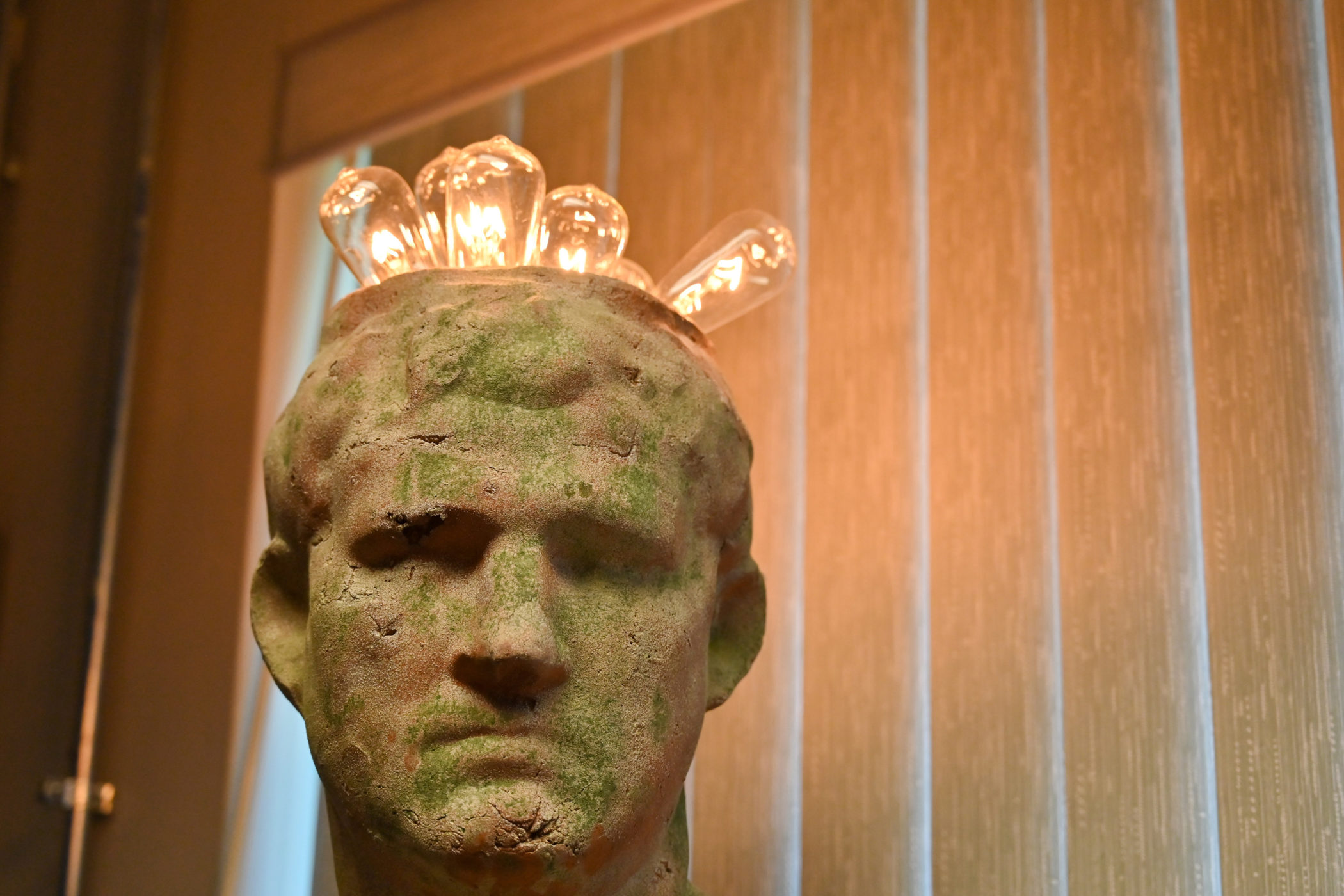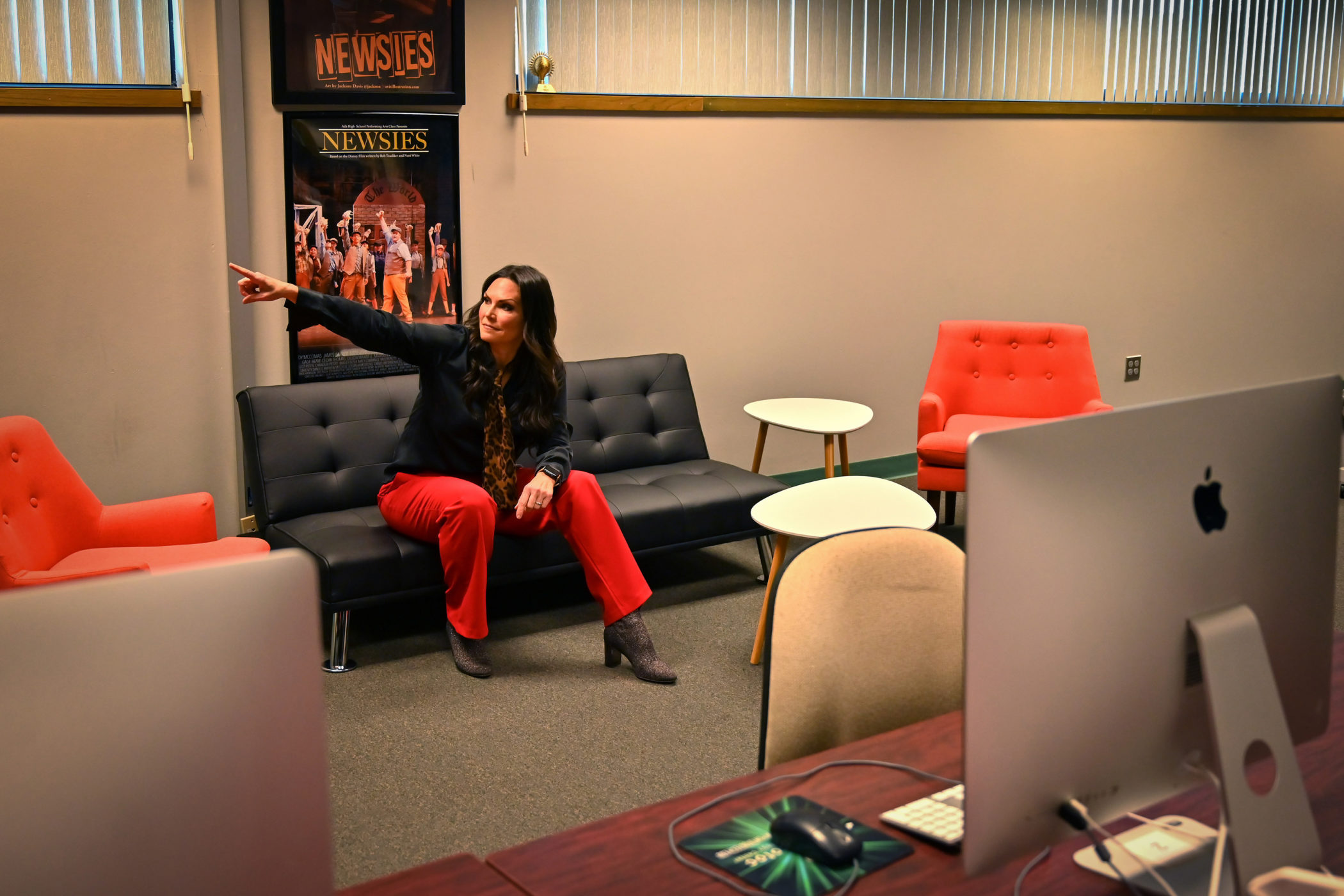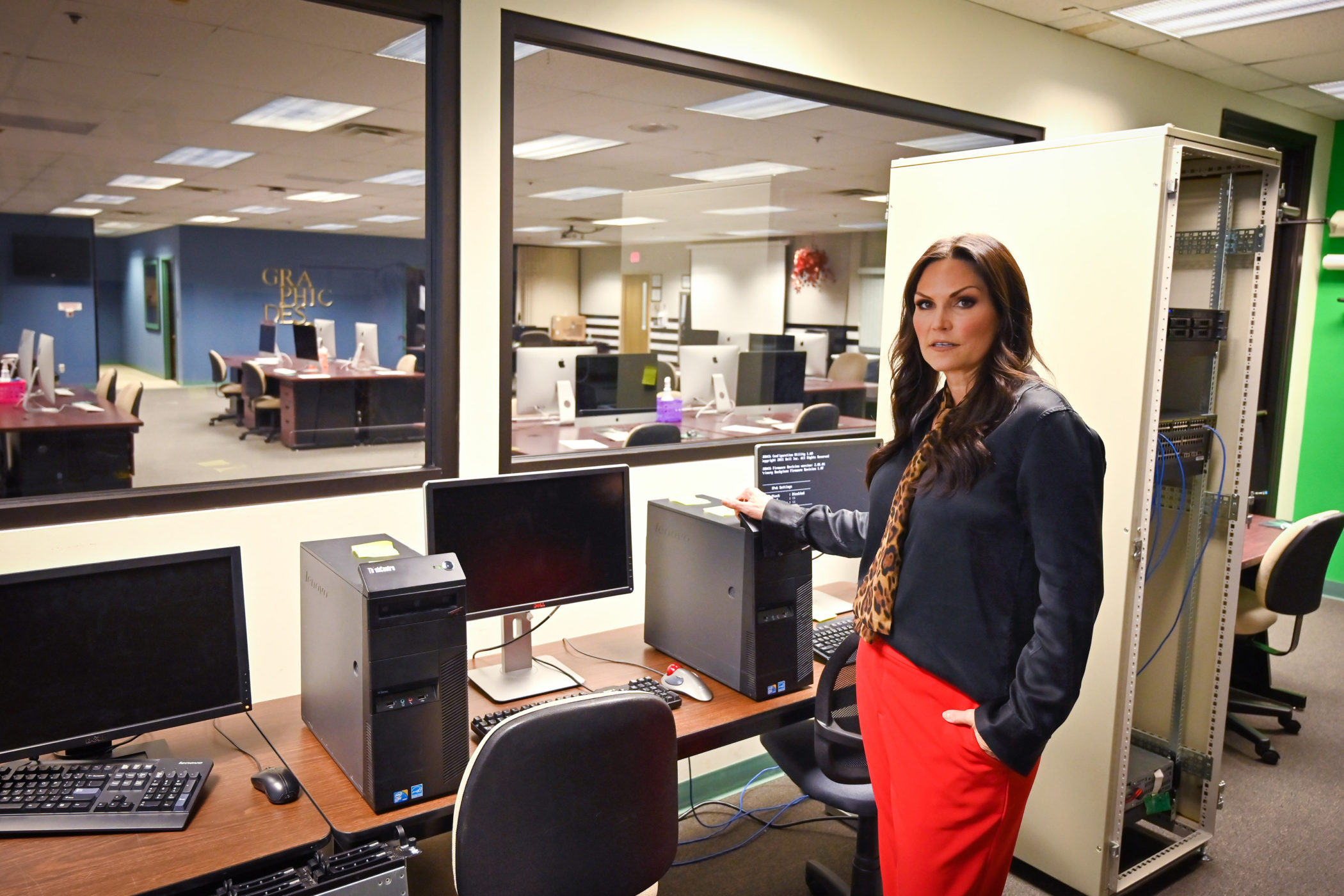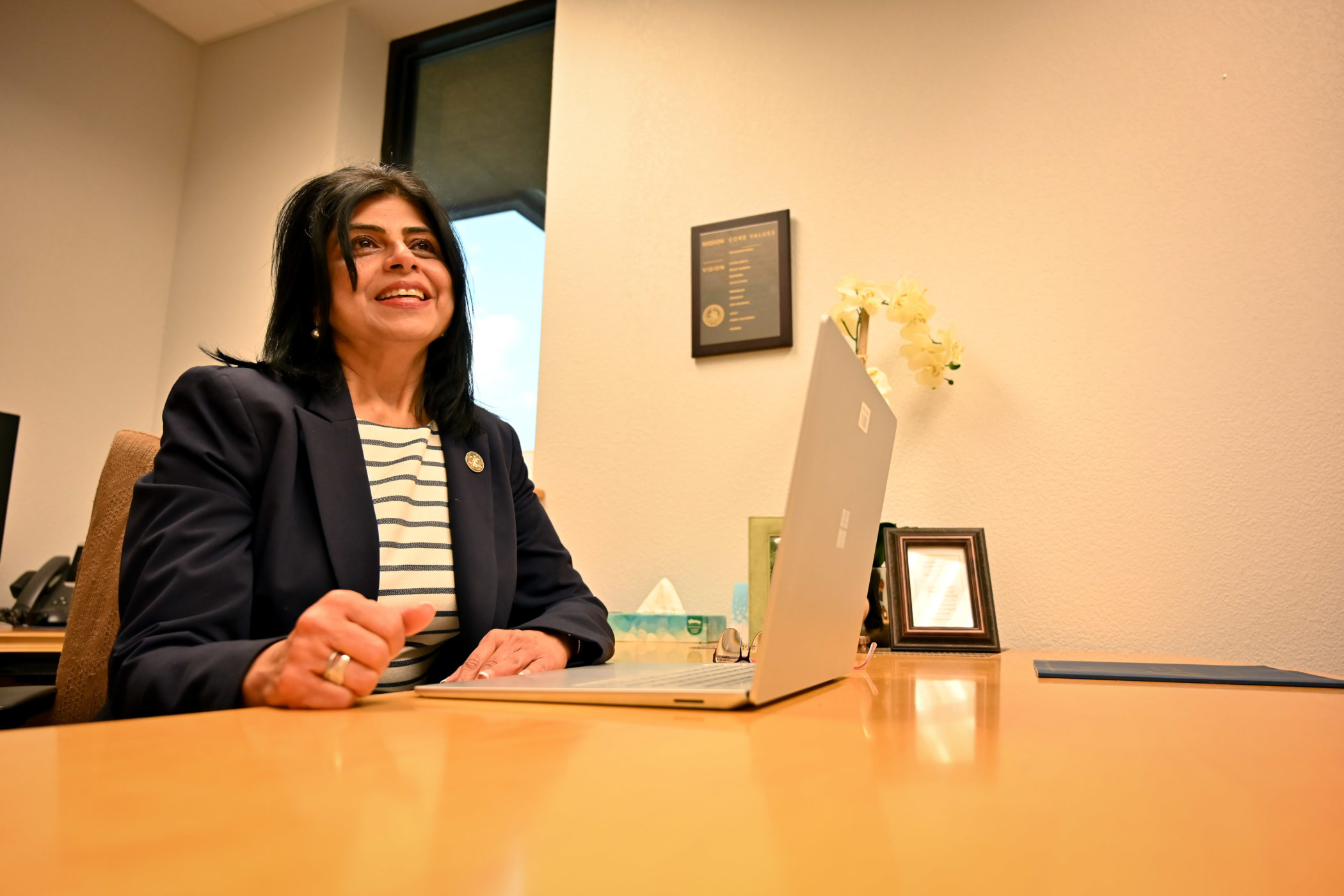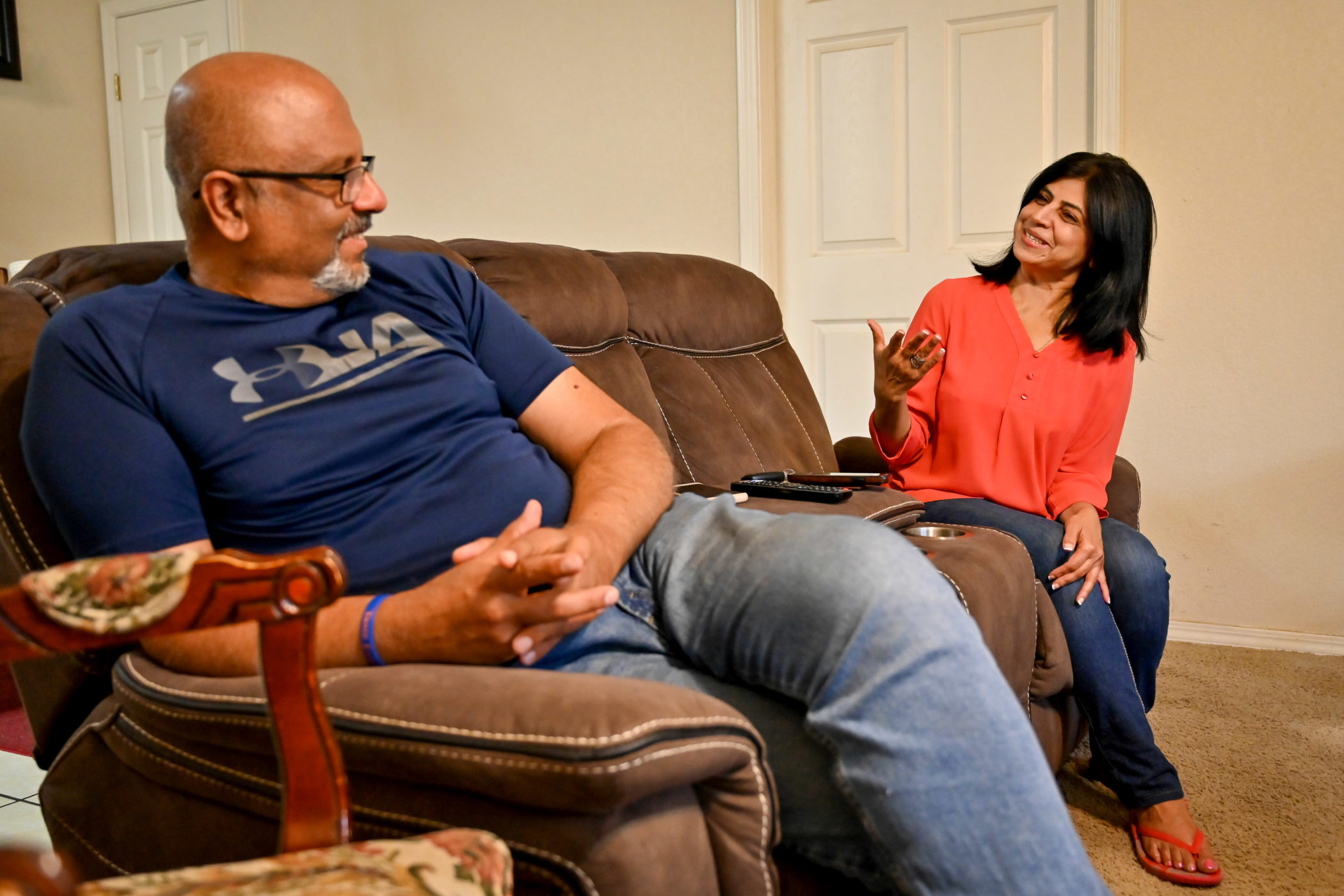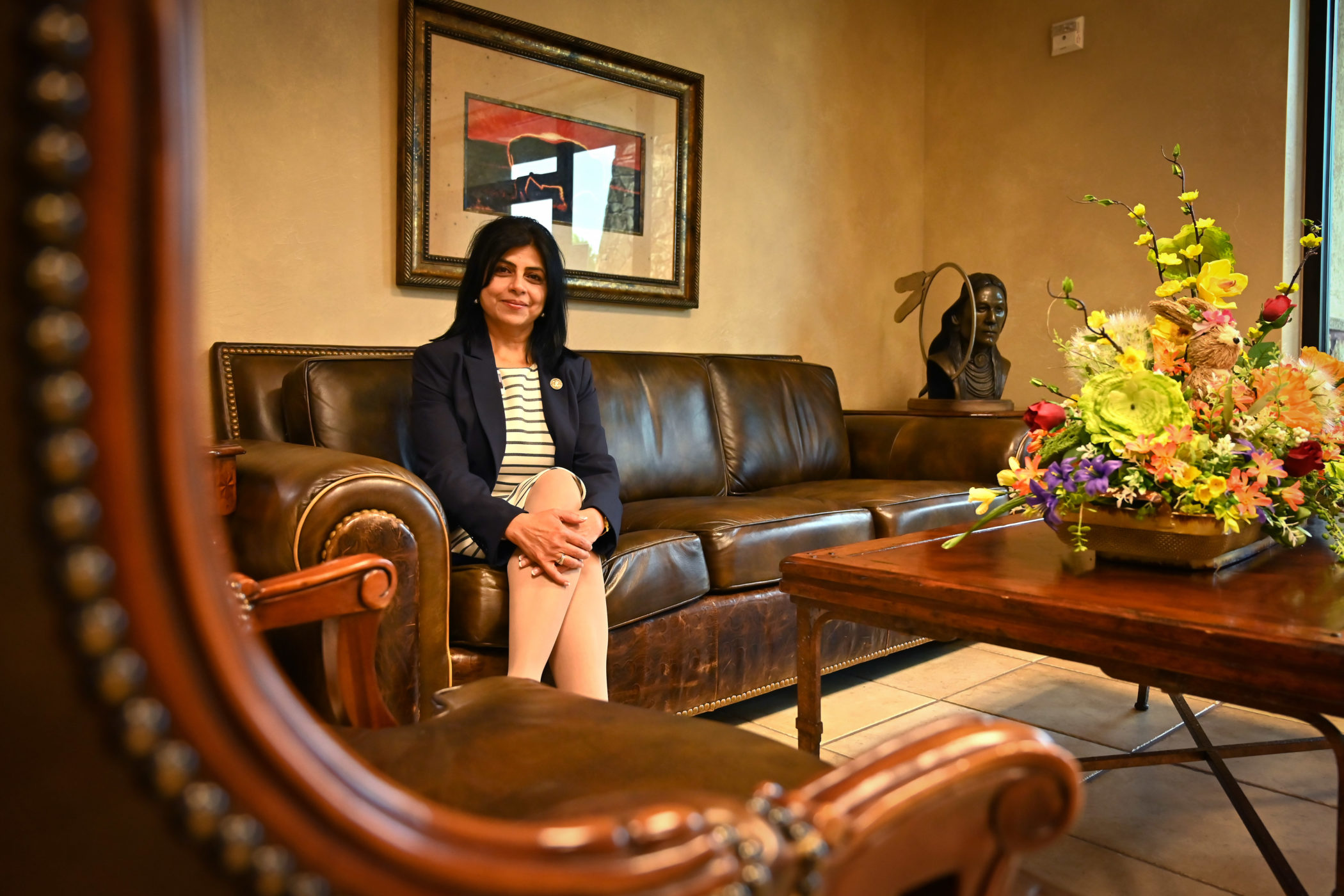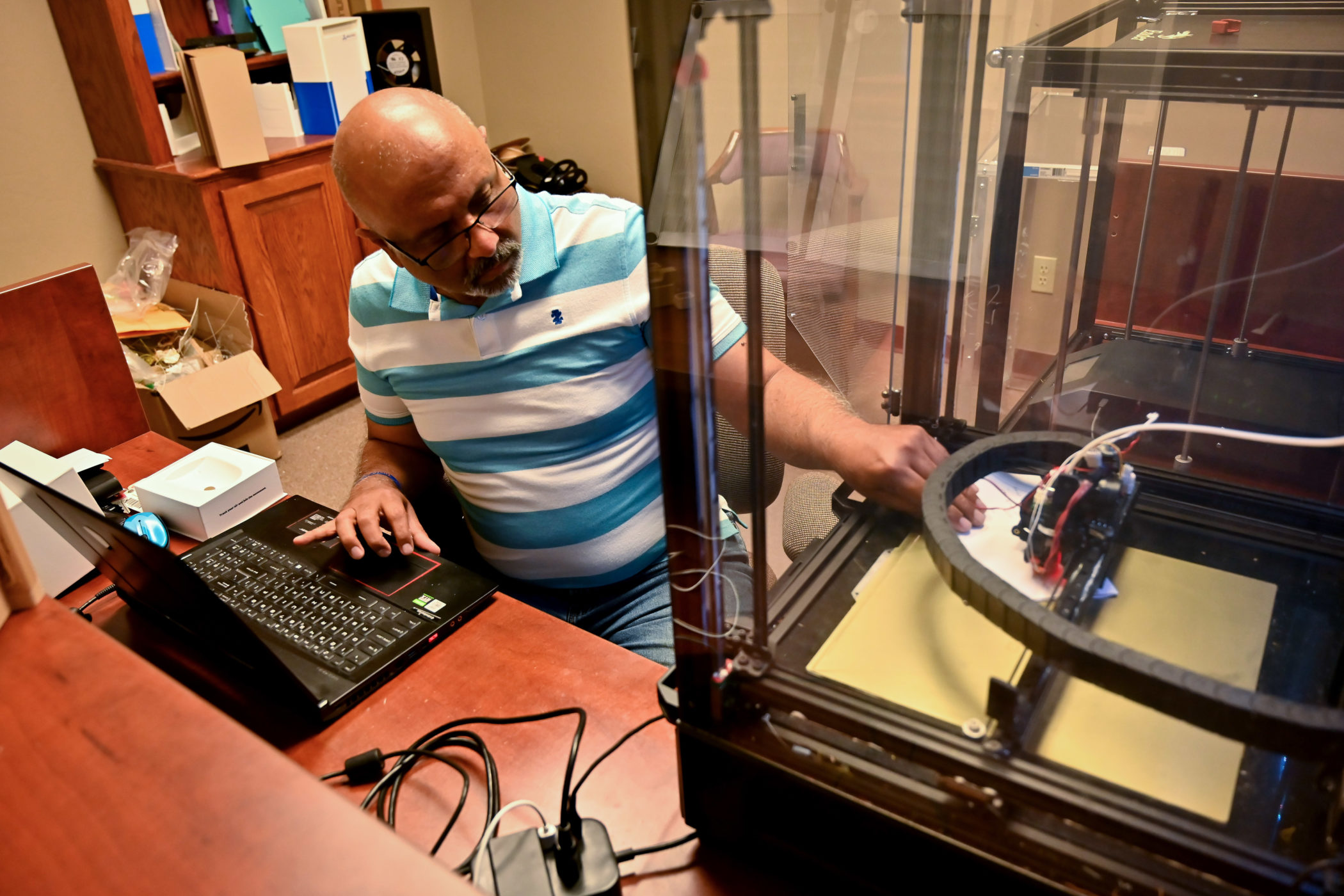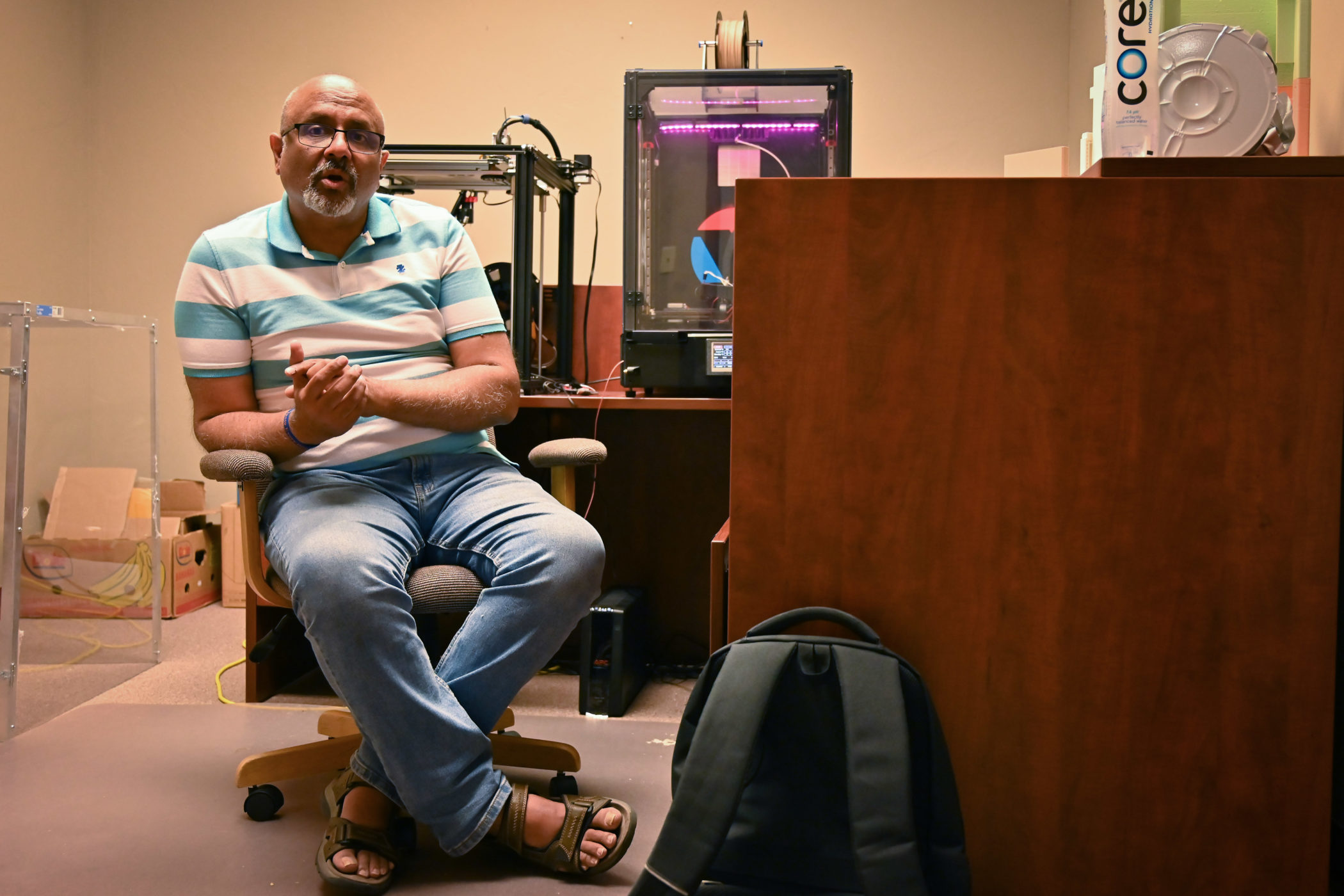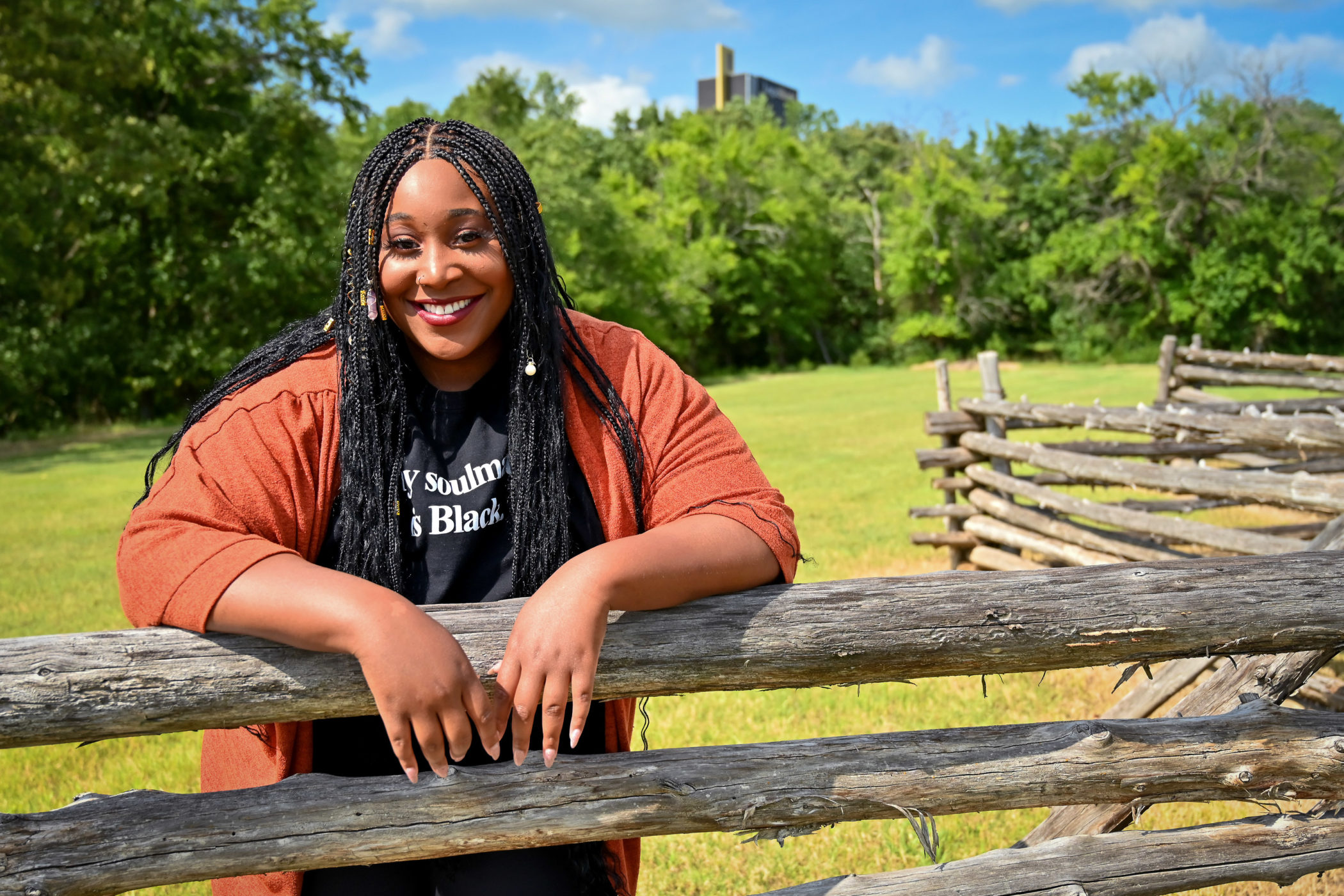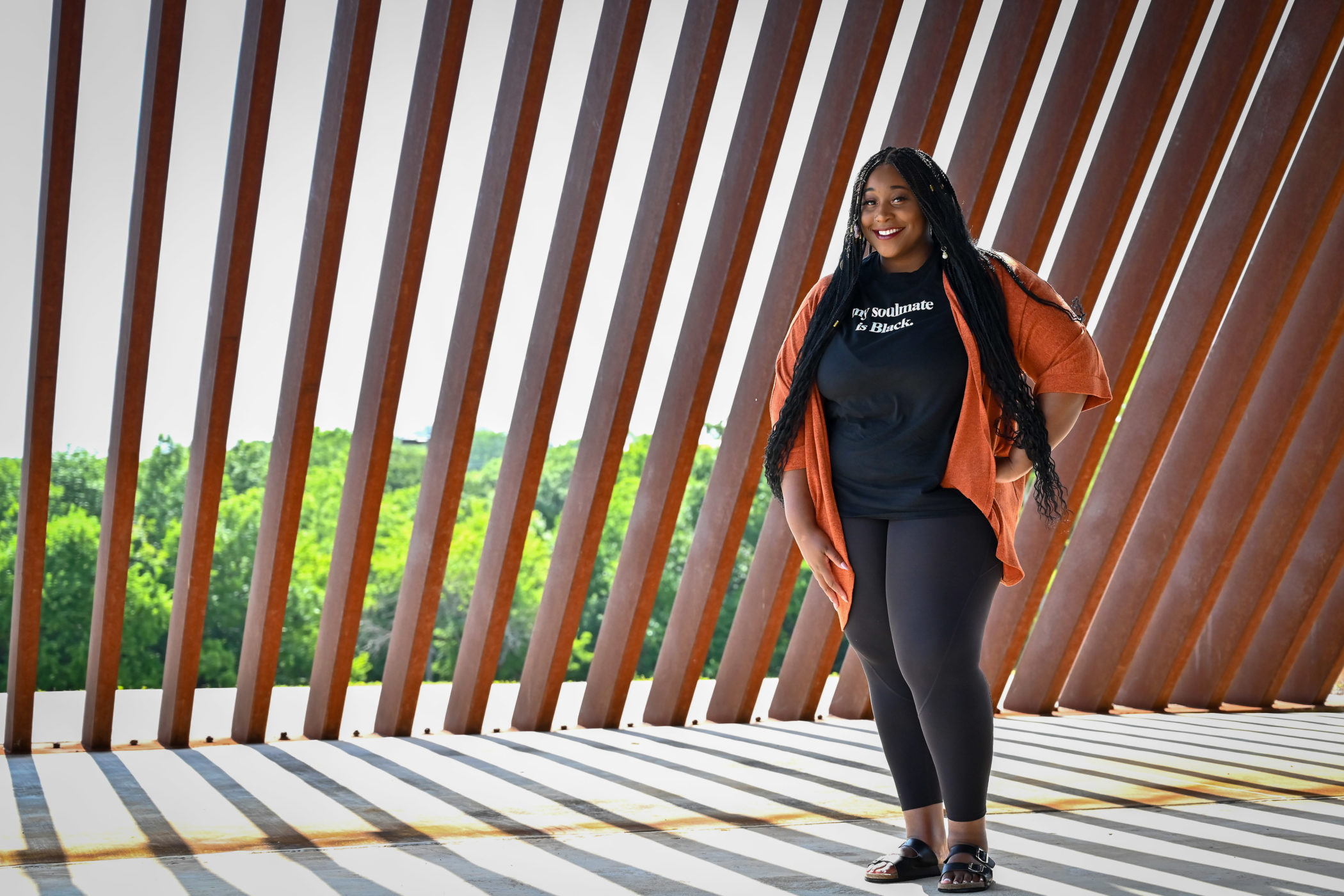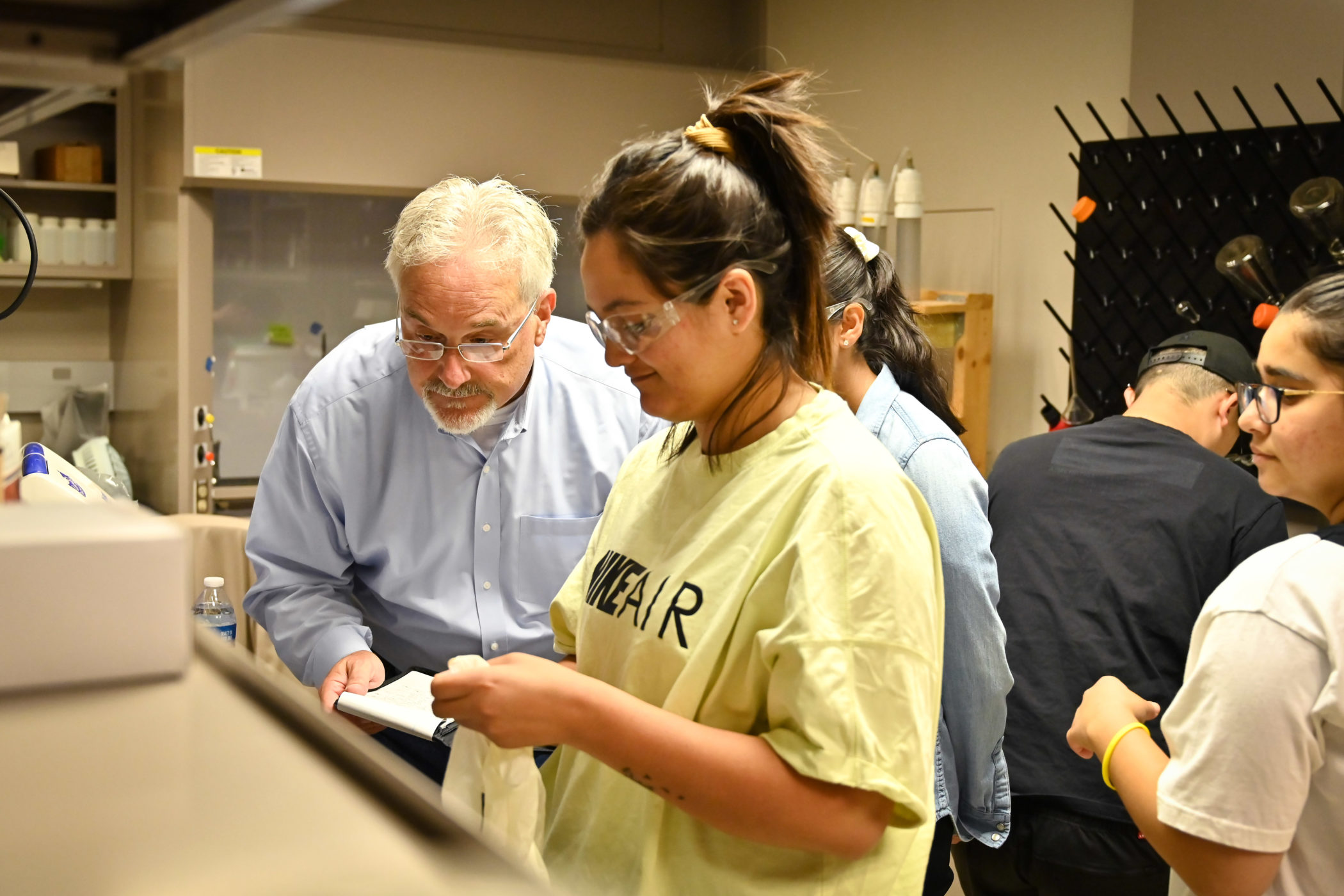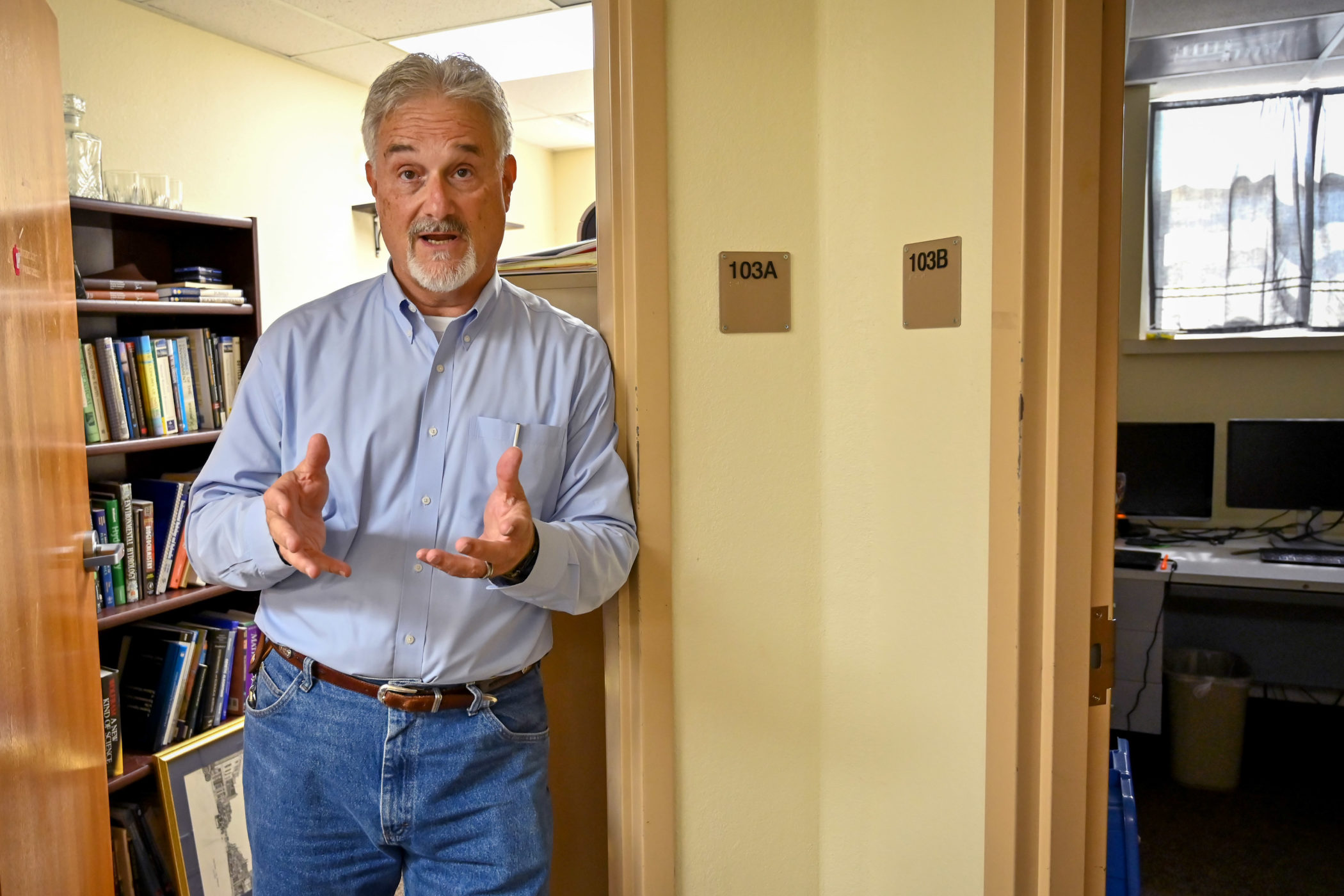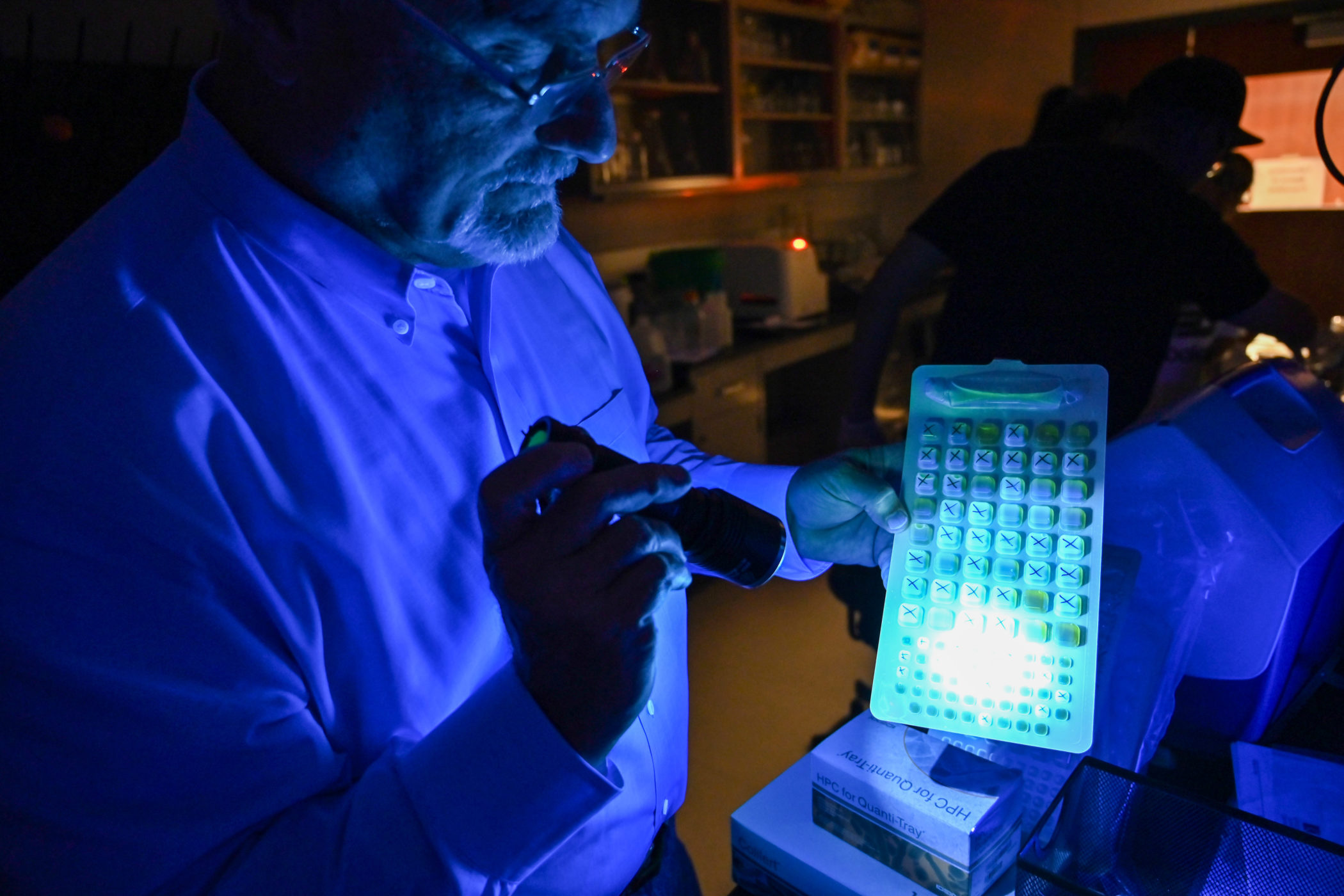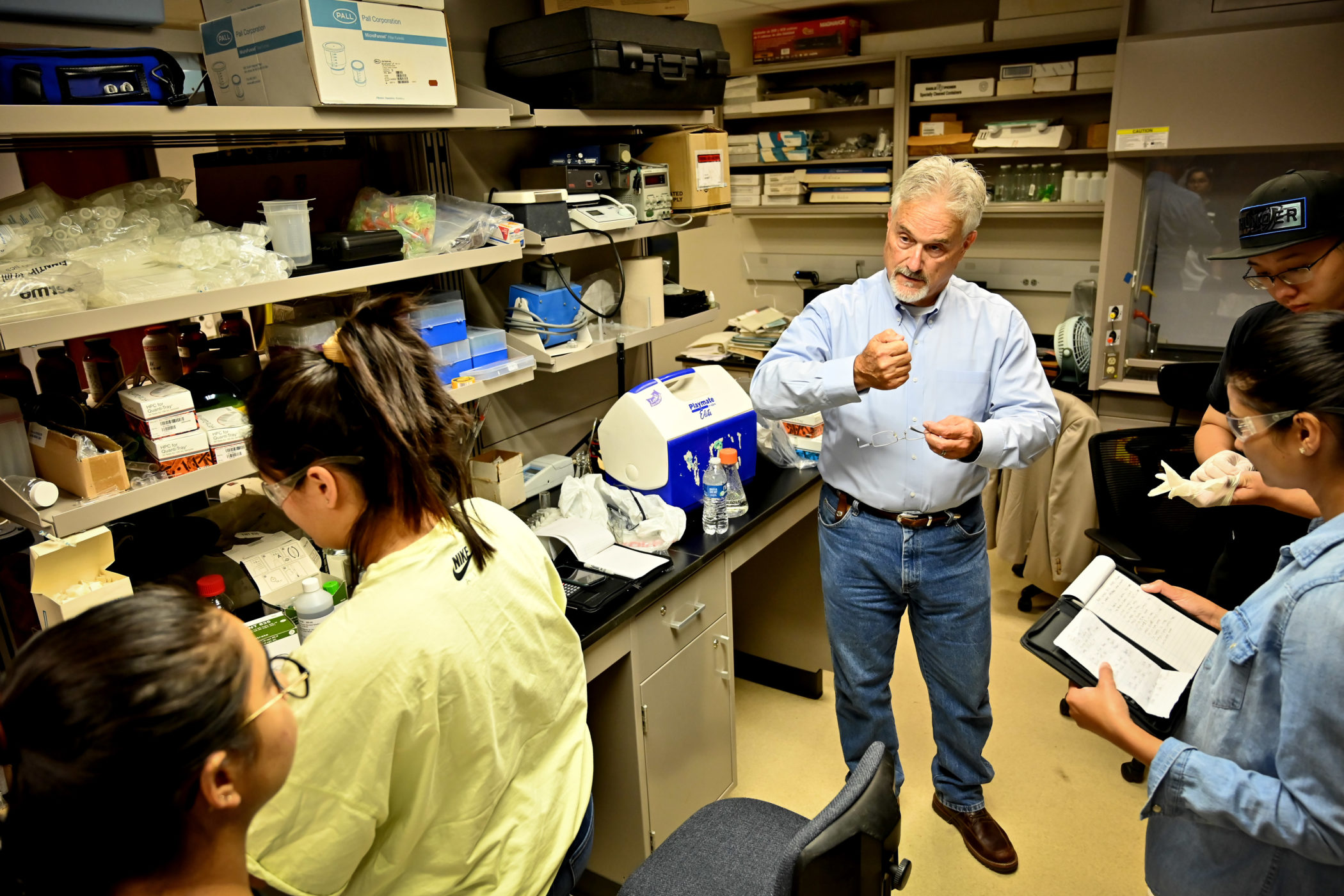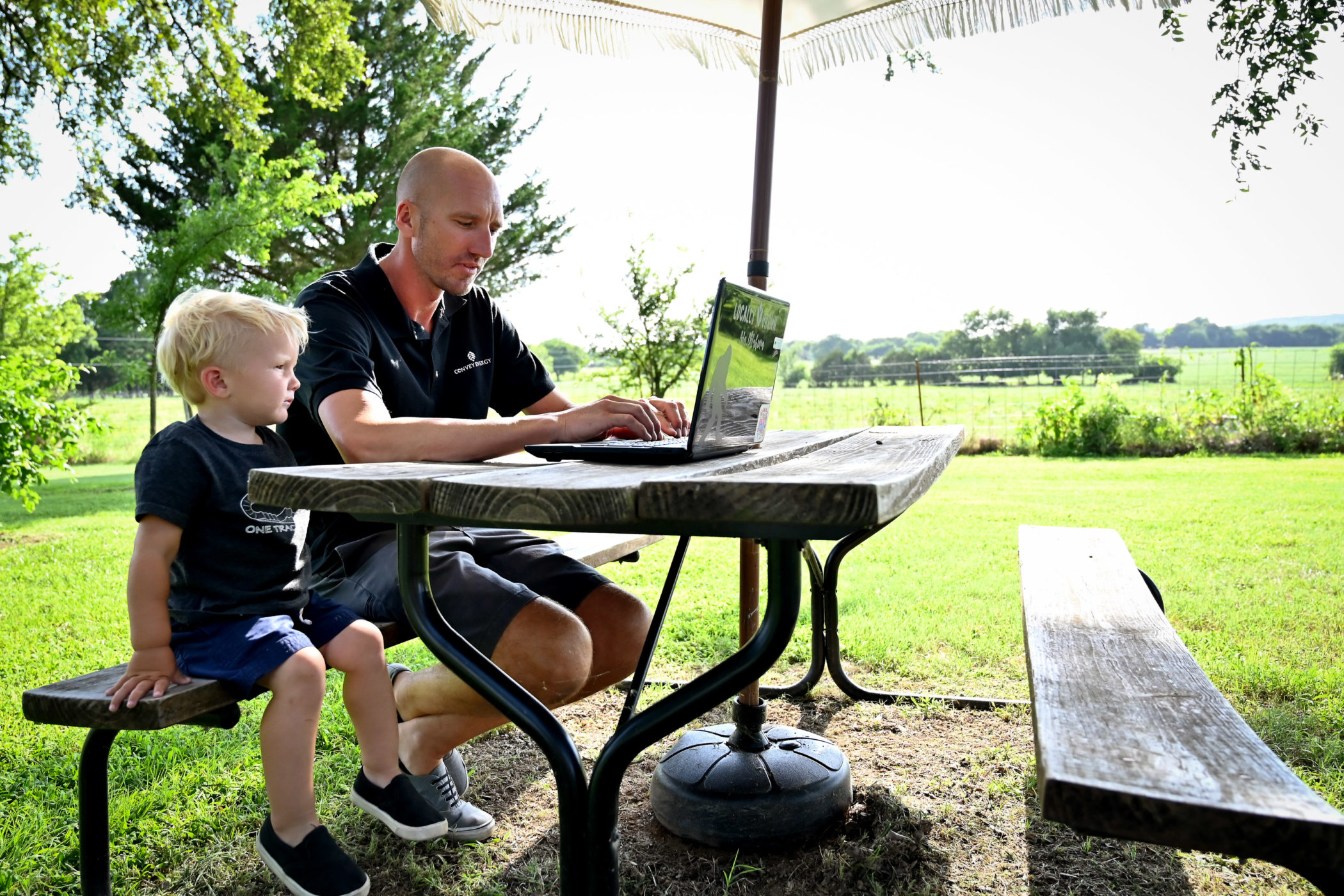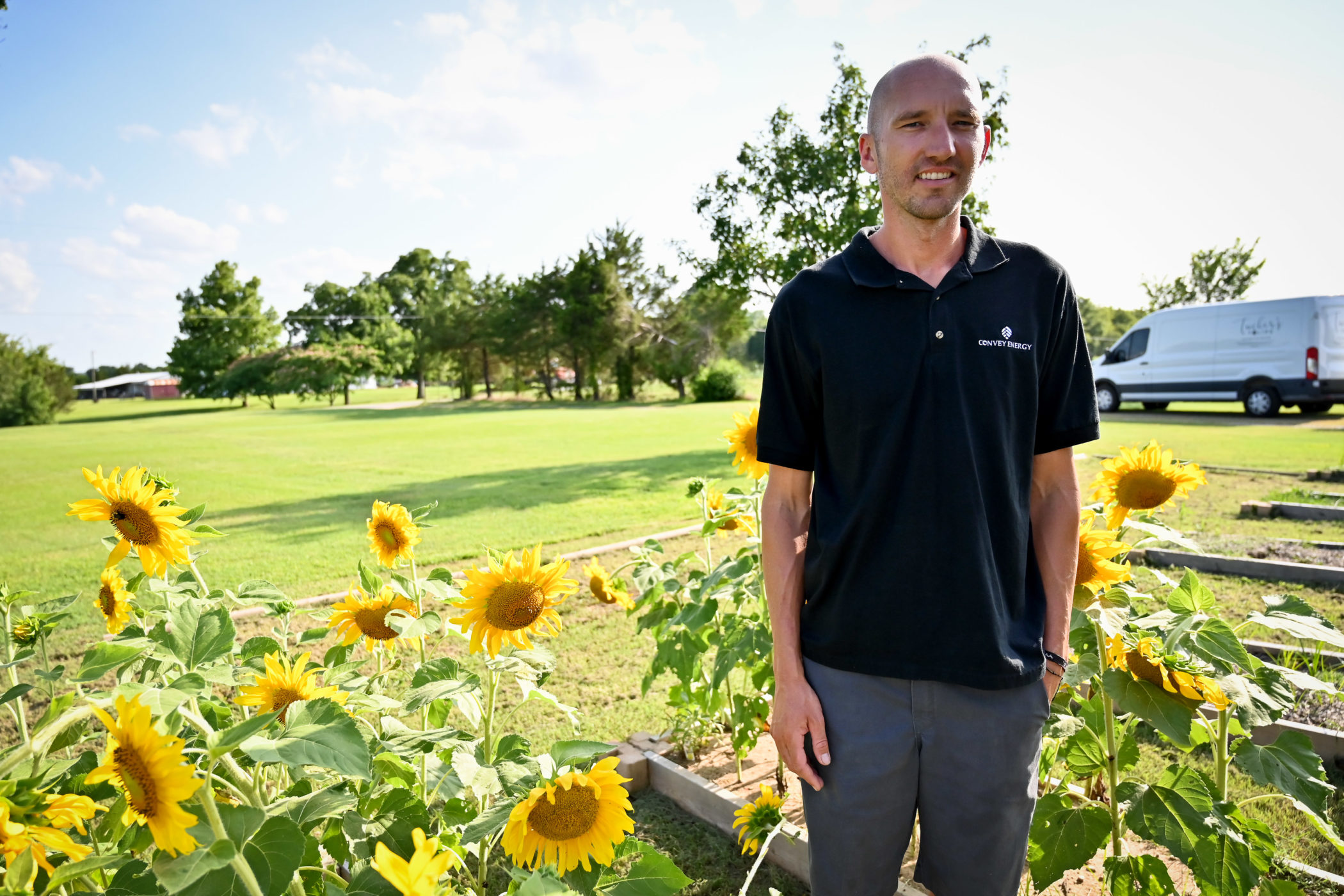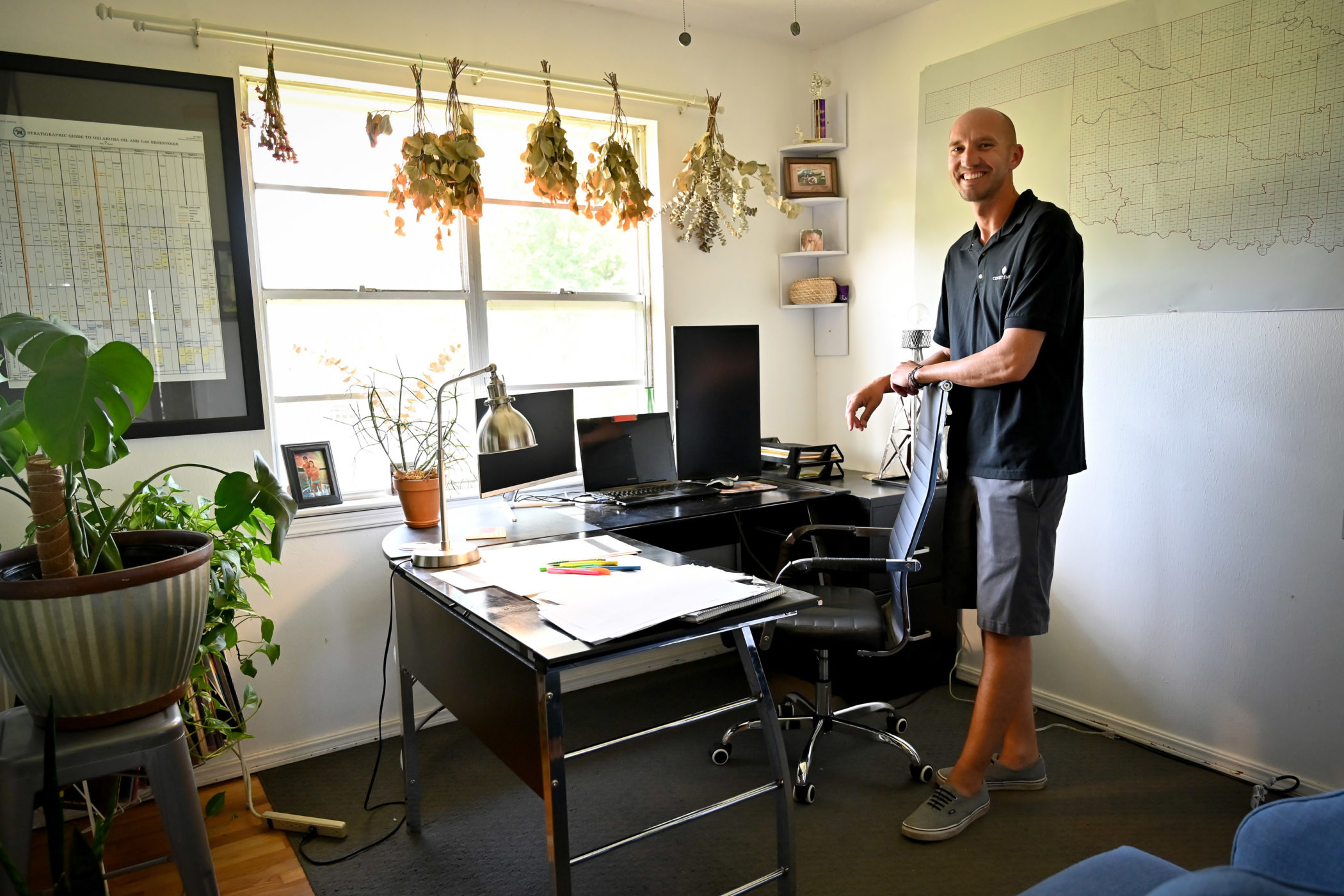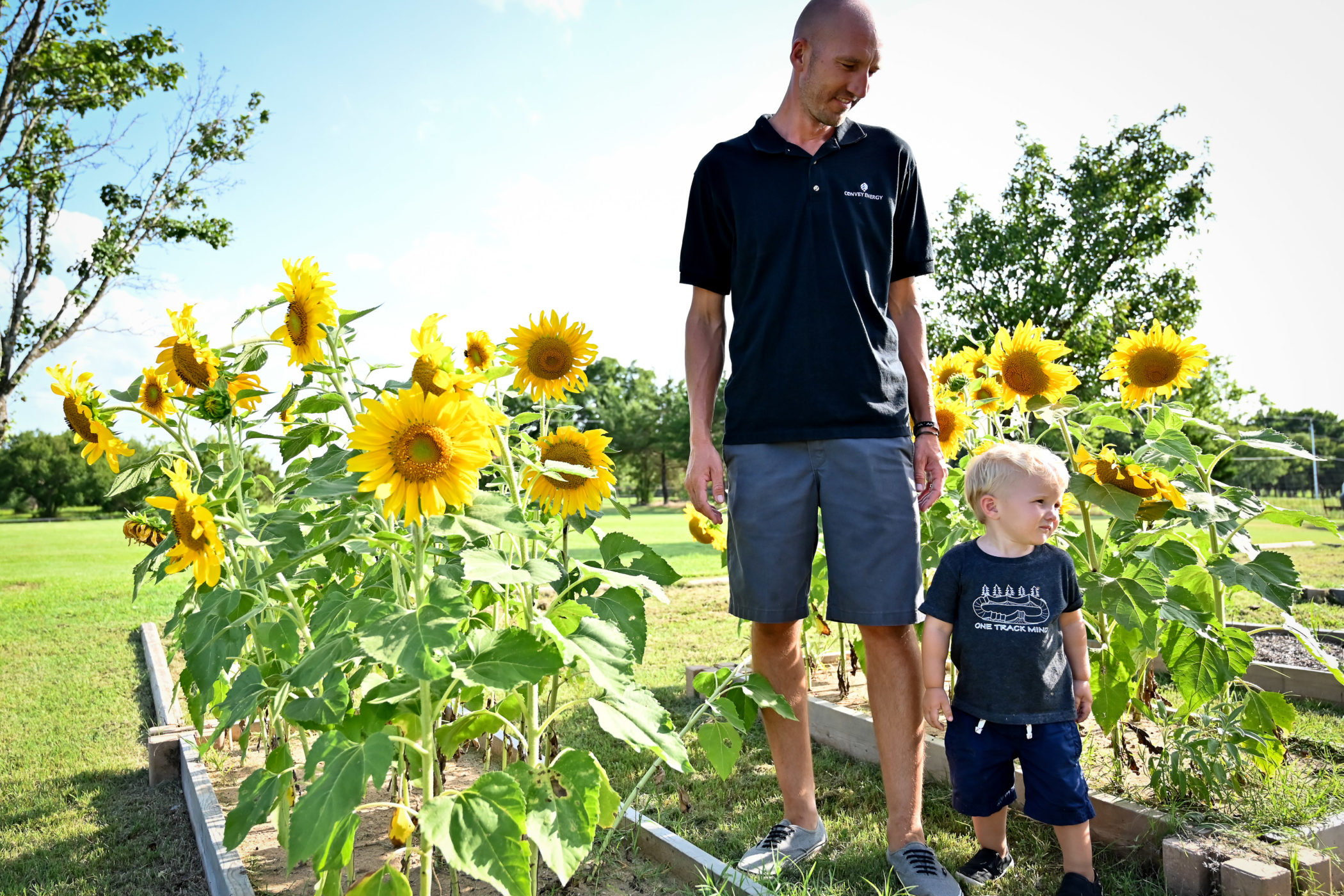Portraits of a community: Ada
Amid the rolling hills and meandering creeks of southeastern Oklahoma, where the South meets the West in the miles between Dallas and Oklahoma City, there’s a small city that’s quietly, diligently punching above its weight.
An oil-and-gas town that also boasts a world-class water research lab.
A headquarters for the Chickasaw Nation, one of the state’s largest employers, as well as one of the world’s largest online legal services platforms.
A home to both agriculture and large-scale manufacturing, and an ambitious four-year college in East Central University.
A regional hub where everyone still knows your name, Ada and its roughly 17,000 residents contain multitudes. And they’re eager to harness the benefits of their multi-faceted identity to unlock another level of success in the 21st century.
That’s why the Center on Rural Innovation visited Ada for the third piece of its “Portraits of a community” series — our first installments featured Taos, New Mexico and Springfield, Vermont. These stories are intended to shine a light on the people who make up the unique ecosystems within CORI’s Rural Innovation Network, which connects rural leaders and advocates around the country to accelerate their learning and amplify their work on the ground.
Jake Cantrell
President and CEO, Cantrell Jackson Oilfield Software
A self-described serial entrepreneur, Jake Cantrell built his first website for a commercial client in eighth grade and has been riffing from there ever since. An Ada native, he went off to college at Oklahoma State but soon returned — the desire to be near family drew both he and his now-wife back to the area. His enterprising efforts transitioned with the opportunities, from building sites to a proprietary content management system to his current venture, a software-as-a-service platform that streamlines billing for oilfield operations. At its peak, Cantrell Jackson employed as many as 40 people between its Ada office and direct contractors overseas, letting Cantrell relish life as a homebody — cooking, landscaping, spending time with extended family — and travel as needed.
“I was born and raised working in the oil fields. I worked for my family’s companies — they bought a saltwater trucking company around 2006 or 2007 and had some issues with it. I ended up building some software to help them manage the day-to-day operations of that company. That started me down the path building more software on the web as opposed to just websites.”
“I would not be doing what I’m doing now had my family not been in the oil industry. Especially a market as niche as this one, you don’t just stumble into this market. We might only have the potential of 40 or 50 companies in Oklahoma. But that’s also what makes us special. We’ve been able to identify a niche, get a strong foothold because we know and understand the industry more than purely technical types because I grew up in (the industry), and by being able to single out that niche we have a highly targeted product that works very well for our customers.”
“With a downturn in the industry, software can help pull out of that. It allows you to do much more with much less. We never talk about how our software can replace jobs because we don’t want that … it’s that we can create time so people can do more relevant tasks than what our software does for them. We’ve had people say we save them 10-15 hours per week for one staff person and that’s just what a good software process can do for somebody, create time for them.”
Tina Davis
IT Instructor, Pontotoc Technology Center
Tina Davis learned the importance of participation growing up in tiny Medford, Oklahoma. When your graduating class is small enough to fit into one classroom, you realize pretty quickly that you have to do a bit of everything — basketball, band, cheerleading, you name it — in order for anyone to be able to enjoy those things. You see a need, you fill the need. That’s part of why the longtime professional photographer, who moved to Ada in 1998 when her husband started his medical practice there, steered her resume in a new direction last year to become the IT instructor at the Pontotoc Technology Center. Now she’s helping open up career paths for teens and adults in the area through programs that range from IT to photography, graphic design and videography, the latter especially promising with the state’s recent multi-million-dollar film incentive bill.
“I was a business owner and a photographer — I didn’t intend to, I didn’t start out wanting to be a teacher. And then before I knew it, here I was. So I had to learn, I had to adapt, which is just another business move.”
“I have been really inspired with the whole film industry thing to do what I do because of where we are, because we’re not in Oklahoma City, we can’t go down the street to Prairie Surf and get involved in that kind of thing on a daily basis. … But it’s my goal to be networked in that so that I can bring that to reality for a lot of them. Because it’s coming. And the thing is, if we don’t train Oklahomans for those jobs, they’ll give them to Californians, whoever comes for them. If we can train them right here, then those jobs will go to the kids that have been living in this town.”
“It’s kind of like, living in a rural town, you’re investing in each other. I mean, you’re here together, you have investments in the people in this community. Because if you have a business, like when I opened my business with photography, I invested in those people that were coming to me, and they’ve come to me for some of them 25 years. So, I’m investing in these kids, and hopefully, they’re investing back with me and hopefully I can bring some of these jobs and things that they’re hoping and dreaming out into a reality for them.”
Hursh Juneja
Head of Enterprise Architecture and Innovation/IT, Chickasaw Nation
Until she and her husband arrived in Ada four years ago, what Hursh Juneja knew about rural America came from the movies — the town immediately became the smallest place they had ever lived. After meeting in their native India, the couple bounced from one metropolis to another, from Delhi to Bangkok to San Francisco to Atlanta, her IT expertise allowing her career to transition smoothly at each stop. Even when cultures changed, fluency in technology provided an anchor. Then an offer to lead IT efforts for the Chickasaw Nation presented a new type of opportunity: The chance to experience a wholly new place and use her skills to support a community was not to be missed. Hursh hasn’t looked back, savoring the simplicity of life and sense of community she’s found in southern Oklahoma.
“Since childhood I’ve had this urge to serve and do more of it, giving back and helping whichever way I can. That urge obviously keeps growing as you grow older, as your responsibilities with your kids go down. We were becoming empty-nesters at that time when this job opportunity came up. What would be more wonderful than having a place where the mission is all about elevating the life of people? Our mission is to enhance the overall quality of life of the Chickasaw people.”
“I’ve worked for large corporations where financial stewardship is very important, it’s important everywhere, but it’s how your mind adjusts to the context. For me here, (the mission) influences and inspires me — that even if I can help save a dollar or help make a dollar, it’s going to go to a scholarship for a student, or to another program or service provided by the organization. … Every dollar matters when it goes back to the community.”
“In the past, like 20-25 years ago, IT used to be a department on the side, a service department, unless you were in an IT company like Oracle or IBM where IT was core to everyone’s worklife. But if you were in a manufacturing company or any other business, IT was just on the side. The change that has occurred since then is that IT is a part of everyday life, it’s integral to everything. I’ve seen this trend where business dreams are pushing IT to innovate itself, figure out new things, how we do it, and in the same way IT is pushing business to think of different ways and come out of traditional thinking and modes of operating. It’s a nice, symbiotic growth relationship.”
Naresh Juneja
Engineer and Co-Founder, BreathifyUSA
An engineer by trade, Naresh Juneja stepped out of his comfort zone to make a late-in-life career change after he and his wife, Hursh, moved from Atlanta to Ada for her new job a few years ago. His startup, BreathifyUSA, is what resulted — a minimalist air purifier based on a machine designed by a nephew in his native India. He’s spent the past year retooling the simple, no-frills purifier from a 17-pound, 30-inch tall unit into a far smaller, lighter product that can be built by a 3D printer using biodegradable, plant-based plastic from parts built and sourced almost entirely within the U.S. eventually. He saw the venture as a chance to give back to the community that inspired him to pursue it, hoping to use early sales to scale the operation into a “micro-factory,” enabled by 3D printing, in Ada and pay forward the collaborative spirit that helped him get BreathifyUSA to this point, including incubation space at the offices of the Ada Jobs Foundation.
“We use 3D printing, so that makes the manufacturing inexpensive. For my prototypes in the last eight months, I spent less than $15,000, and the product is nearly production-ready. That is a very fast turnaround where I’ve redesigned the whole product in terms of the weight, sound level, and manufacturing method/delivery. … I choose to build it here because I think we need to reinvigorate our rural economies in the country to really make progress. Otherwise, this (rural-urban) divide is going to stay, the problem is going to stay, right?”
“For me, my end goal is to make a good air purifier available that most people can afford, and I’m happy about what we will be able to deliver. I also want to eventually share my learnings and teach people how to build a product. I didn’t know much on that part. I want others to benefit from what I have learned.”
“I want to put us (Ada) on the map in terms of at least people knowing that something started here, and I don’t know how it will do it, but it is important that I try my best to make it successful. It is noble business … that’s how I define my business. I think every business has to have a goal right for greater good. And we have seen that the corporate goal of going the IPO route right has its advantages, I cannot deny that. The country has progressed a lot because of that goal and large corporations … but the rural communities have not been able to benefit much from that growth.”
Amber Ransom
Founder, Crowned Roots Custom Designs
Born and raised in Ada, Amber Ransom also earned her degree in mass communication at her hometown school, East Central University. And landing a graphic design job for LegalShield soon after college allowed her to stay near her family while sharpening her graphic design chops every day. All of which led to the moment in early 2021 when Ransom decided to combine her tech skills and entrepreneurial spirit to launch her own design business on the side, Crowned Roots Custom Designs. Her initial focus, part of a broader suite of design services, has been producing original t-shirts — and she beat her early sales goals on that front, empowered by a business model that allows anybody anywhere to purchase her creations. Ransom’s hope is to use this experience to inform and support future business ventures such as establishing a wedding venue on land she owns outside Ada.
“I started selling t-shirts during the pandemic as a way to entertain myself, something that was different and was going to give me practice with running my own business — webpage, social media, learning how to get customers, do different things and connect with different businesses. I’ve never wanted to work for people — I’ve always wanted to work for myself.”
“I started my business during Black History Month because, as a black woman, I realized there’s not a lot of t-shirts that advocate for me. I don’t have a lot of t-shirts that (let me) really embrace my culture and who I am. … Really, that’s what started it. I felt like if I’m wanting this and I can’t find it, there’s probably other African Americans looking for this as well. It went from that to LGBTQ groups — I don’t ever see shirts for them. And it went from that to shirts about positivity, pretty much every theme.”
“Starting fresh, it’s like you have to find a whole new target audience. Who is my target audience? Who’s going to buy my shirts? How do you get people to like your page and follow your stuff, check your website? It’s a whole different ball game starting from scratch. That’s why it’s great I’m learning now so when I start my (next venture) I have that down pat.”
Guy Sewell
Professor, East Central University
The knowledge and expertise Guy Sewell has honed as a microbiologist didn’t just bring him back home to southeastern Oklahoma, it has pushed him to take on multiple roles in the area, too. A professor at East Central University, an environmental consultant, and a city council member, Sewell is also an advocate for Ada’s economic development, working with the Ada Jobs Foundation and the city on the concept of developing a future-focused water-technology cluster and opportunities that make the most of the area’s pre-existing wealth of knowledge in that field as home of the EPA’s Kerr Environmental Research Center. The Kerr lab was what brought him back to the area initially, and the opportunity to join the faculty at ECU while keeping the quality of life he came to enjoy — his house is close enough to campus he can slip home for lunch, but with ample access to nature and open spaces to satisfy that need too.
“I do a lot of research in water resources, I see the need for both our area and rural parts of the U.S. that this is an area that could be something important to future economic growth and the future well-being of the country also. Ada is home to the (EPA’s) national groundwater research lab — this is one of the things we’re good at. We have a lot of expertise and a lot of technical know-how associated with groundwater issues and that links very tightly to most rural water supplies in Oklahoma and much of the midwest. It gives us a way to get there if we want to do something creative in terms of developing new business opportunities.”
“I’m invested in the community. It’s important to me that the people of Ada and this area actually have the things that they need to face the future. By being involved in some of these processes, I’ve seen we can’t just assume someone else is going to take care of this stuff. There are important things as members of society that we need to pay attention to — making sure people have jobs and can work.”
“The opportunities here for business and wealth creation are much more flexible than they’ve ever been in the past. Perhaps we get to the point where people live where they want to, not where they have to work. And if that’s true, this is a pretty nice place to live.”
Cody Tucker
Founder, Convey640
Cody Tucker discovered pretty early on that he would be better suited to working for himself than someone else. By then, the Oklahoma native had been working in the oil and gas industry after earning a degree in energy management and had the experience needed to strike out on his own. In 2016 he started his own due-diligence company, Convey Energy, catering to mineral owners, equity funds, and other firms, which led to his most recent venture, an oil-and-gas data analytics software platform, Convey640. Tucker managed to do all of this in Ada, a place whose everybody-knows-everybody familiarity — one that doesn’t allow people to get lost in the shuffle like a bigger city — appealed to him. That, and plenty of terrain for him and his young son to enjoy one of his longtime hobbies, motocross, as well as for him and his wife to start a popular tulip farm, Tucker’s Tulips, and landscaping business.
“It wasn’t really like I was like (I tried) to be a data software company. It really just, each step, kind of compiled onto each other. Then I kind of liked it and thought there was an opportunity there. So that’s kind of how I got into this side of the business. And then that’s why we still have the consulting due-diligence side, because it’s all kind of related. It all helps build the brand and relationships.”
“I mean, I’m not where I want to be yet. But we’re making it work. In the oil industry, you know, a crash happened as far as prices going negative, which is great for gasoline prices and all that. But as far as companies operating, they really make money unless oil is around like $70 a barrel, which is where it’s at right now … so it’s finally coming back. We survived the downturn, as far as the software platform. It really didn’t grow during that time, but it didn’t shrink either.”
“I work from home — you can do that with technology now — and seeing our businesses, you know, not decreasing, it’s slowly increasing … people really don’t care that you’re not in the Houston or Austin area. So that’s pretty cool. Hey, we’re in Ada and we’re building this software platform that companies in Denver use or Houston or even our Australian clients now.”
It doesn’t end here.
Ada is a great example of what can happen when America’s small towns embrace the hard work required to reimagine what is possible and begin creating digital economy ecosystems that can meet the future head-on.
Through its Rural Innovation Initiative, CORI’s work makes it possible for local leaders to connect and learn from each other in a community of practice. RII communities have a range of resources at their fingertips to help implement what CORI has identified as Direct Drivers of vibrant digital economy ecosystems:
- Access to Capital
- Scalable Tech Entrepreneur Support and Incubation
- Inclusive Tech Culture Building
- Access to Digital Jobs
- Digital Workforce Development and Support
Each of these elements allow communities like Ada to compete in the broader tech economy.
Learn more
To meet the Rural Innovation Network communities doing ecosystem building in small towns across the country, you can find a list here.
If you are a community interested in working with us to grow or build your own digital economy ecosystem, please contact us.
To learn more about our work in this space, be sure to check out our blog and sign up for our newsletter.


